#writer: cuckoo-on-a-string
Explore tagged Tumblr posts
Text

#safin sunday#writer: cuckoo-on-a-string#tea taken black#lyutsifer safin x ofc#lyutsifer safin imagination#lyutsifer safin fanfiction
3 notes
·
View notes
Text
ABOUT THE WRITER + MASTERLIST *links have been fixed

AUTHOR'S STATEMENT ON PALESTINE
Click on this link if you want a Heartless update
🔞🔞🔞
My fandoms:
The Sandman (comics and tv show)
Call of Duty
Dune
Heartless (Simon “Ghost” Riley x fake marriage!Reader):

masterlist
Also keep an eye out for @cuckoo-on-a-string ‘s upcoming Price x Reader marriage of convenience fic, which is related to Heartless!!! Teaser here.
Summertime Sadness (Simon "Ghost" Riley x second chance romance w/ heavy angst Reader):
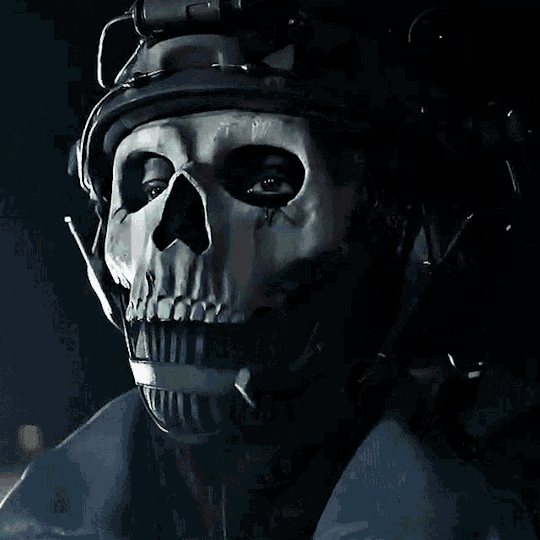
Chapter 1
Chapter 2
Chapter 3
Chapter 4
treehouse (Dream of the Endless x pregnant!Reader):

masterlist
THE KNIFE OF MUAD'DIB (Paul Atreides x OC!Reader x Chani)
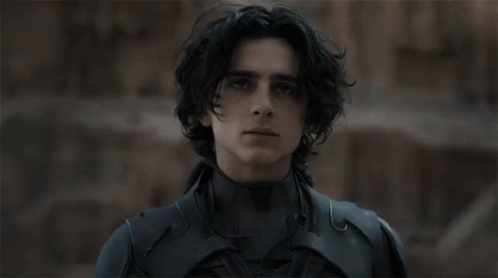
Part 1: Jessica
Part 2: Paul
Part 3: Duncan
Magindara (Dream of the Endless x mermaid!Reader)

Tumblr
AO3
Let The Good Times Roll (Captain Price x sugar baby!Reader):
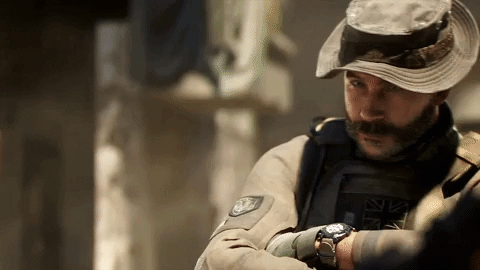
Part 1
307 notes
·
View notes
Text
Sandmaniversary Celebration 💫
I wanted to write/create something for the Sandmaniversary this weekend, but I'm visiting my parents and my brain has been filled and worn out by summer Shakespeare (we open next week holy shit i'm totally frekaing out but also super excited) anyway
so instead I decided this would be a great time to not only celebrate the show, this world Mr. Gaiman has given us, but also celebrate each other, the fan creators! In no particular order, these are some of my fave writers and artists in this incredibly talented fandom!
@delta-pavonis @teejaystumbles @honeybeezgobzzzzz @just-french-me-up @just-some-random-blogger @7-wonders @cuckoo-on-a-string @peachesofteal @withoutyouimsaskia @writethrough @undiscovered-horizon @roguelov @dotieeee @lilpunkrock @lis-likes-fics @deicidis @rosaren2498 @daddyjackfrost
Y'all have expanded my enjoyment of Sandman and the Dreaming exponentially, I love revisiting your works and finding something new every time! So here's to our Sandman blorbos, our favorite realms, and here's to you who keep the stories growing 💗🥂
34 notes
·
View notes
Text
@cuckoo-on-a-string @rathernotmyname @poptod @mottshepard @dorminchu @hexiva @padawansubscription @infinitegalahad @silverlambcaptain @one-boring-person @edteche2 and every other writer, who is on ao3 I may forgot to tag!
Are you frustrated you can't leave second kudos on AO3? or third kudos? or whatever-who's-counting kudos?
Well, have I got the html for you!
Plop any of these in a comment (by copy&pasting the code) to make an author's day and show your appreciation!
Second kudos: <img src="https://i.ibb.co/tHMjbb6/second-kudos.png" alt="second kudos">
Third kudos: <img src="https://i.ibb.co/52bggQH/third-kudos.png" alt="third kudos">
nth kudos: <img src="https://i.ibb.co/6y7qGtC/nth-kudos.png" alt="nth kudos">
yet another kudos: <img src="https://i.ibb.co/wKtcj0s/yet-another-kudos.png" alt="yet another kudos">




It will look something like this (and will be transparent with white outline on dark backgrounds):

Feel free to spread and use these as much as you like! (and if you have ideas for other variations, let me know ✌️)
110K notes
·
View notes
Note
Did you discover any new authors this year that have become just read authors for you??
That's a great question, nonnie! I do think I have a couple new ones, yes.
Anthony Doerr. The beauty of his words, the masterful way he weaves his sentences together--makes me want to weep. I thought he was fantastic after reading All The Light We Cannot See but he wasn't a must read until after I read Cloud Cuckoo Land this year. Years may pass between publication of his books, but I will be hanging on my heart strings to get my hands on anything new of his.
Martha Waters has become a must read author for historical romance this year. The Regency Vows series is a subversive, regency delight and I cannot stop squeeing about it. I rec her books to anyone who will listen. I can't wait to see what else she pens in the future!
Olivie Blake has become another must read for me. I read The Atlas Six (a fantasy) and Alone With You in the Ether (a contemporary romance) by her this year and I'm obsessed. She has a backlist - as well as Dramione fanfiction - that I'm looking forward to diving into soon.
Erik Larson is another one. He writes nonfiction that reads like fiction. It's gripping stuff! I will read anything he writes in the future.
I also really enjoyed Courtney Gould's debut, The Dead and the Dark, so I'm super curious to see what she writes next.
Some other writers who have been on my my Will Read Their Entire Backlist As Well As Their Future Titles list for a while now:
Emily Henry - Gimme all the contemporary romance!
Taylor Jenkins Reid - Her historical fiction is *chef's kiss*
Fredrik Backman - He makes me laugh, he makes me cry
Neil Gaiman - A literary wizard. No joke.
V.E. Schwab - I’ve read a bunch of her books already, but I have so many more to go
Natalia Jaster - If you like atmosphere and poeticism in your fantasy romance, you’ve got to read her books. It’s required!
Thanks for the ask, lovely! xx
6 notes
·
View notes
Text

A CGI Pinocchio? Well, it does give the whole ‘wanting to be a real boy’ a new dimension. A CGI Jiminy Cricket? Well, it is after all a talking, top-hat wearing, umbrella-carrying insect so sure, why the hell not. But a CGI cat? Really? You couldn’t get an actual cat to play the cat? And don’t even get me started on the CGI goldfish. And why is Figaro an otherwise regular house cat but Gideon is an anthropomorphic cat that walks on its hind legs? I know it’s just a kiddie fantasy, but don’t you think even children would appreciate a little consistency?
Having to interact with so many computer-animated beings, it’s no wonder Geppetto comes across as a senile old fool, although the script does him no favors either (when he goes looking for Pinocchio in the middle of a downpour, he brings the cat and the fish with him. Who goes around carrying a fish bowl, even in the best of circumstances?). On the other hand, Geppetto is apparently the Nostradamus of cuckoo clockmakers, anticipating and possibly inspiring Disney’s entire catalog.
There’s a fine line between being smart and being a smart-ass, and Pinocchio doesn’t just cross it; it pole vaults over it and clears it by a fucking mile. In addition to the clocks (which remind me of Cletus’s “I whittles what I sees. Sometimes I whittles the future”), there’s Honest John telling Pinocchio that he could be an “influencer,” and suggesting “Chris Pine” as a stage name (Chris Pine is pretty wooden, but I doubt the writers intended it that way). Hard, fast rule: intentional anachronisms are NOT a valid form of comedy.
Even if Pinocchio were a real puppet (and why oh why isn’t he? That’s why they invented animatronics), it would be hard to care about him. Not only hasn’t he got a conscience, but he lacks a will of his own. Everything he does he does based on what other people want, and everything that happens to him is thrust upon him. He may not have strings on him, but he never stops being a marionette.
Even when Pinocchio lies and his nose grows long, he does it for no reason other than the script requires him to. Thus, the lesson is not ‘don’t lie,’ but ‘if you really need something, it’s okay to lie in order to get it.’ Overall, the events of the plot seem either too arbitrary, as if someone suddenly remembered the original animated movie’s storyline, or too calculated.
For example, no sooner does Jiminy start talking about peer pressure than Pinocchio literally falls in with the Coachman and the boys headed to Pleasure Island. The Coachman even sings a song about peer pressure, so maybe they should have just called it Pressure Island.
Once there, Pinocchio and Lampwick get fucked up on root beer. Wait, what? Root beer? No wonder they don’t really get fucked up at all. I don’t think you can even catch a buzz with root beer. The worst that can happen is having to piss more often that usual, but Pinocchio has neither a liver nor a bladder, so what the fuck difference does it make anyway?
And there’s the big climax with the whale and shit, which looks like Andy Serkis splooged all over the screen. Even Nope’s flying saucer or whatever the fuck it was looks more real than this supposed sea monster. Perhaps next time they should wish for a real movie.
0 notes
Text
15 lines
Tagged by the fabulously talented @theviridianbunny 💚
Tagging: @dotieeee @honeybeezgobzzzzz @aralezinspace @cuckoo-on-a-string and anyone other writers who would like to join in.
Rules: Post 15 lines (or less) of character dialog. You can include context for the scene if you wish!
All of these are from my Sandman works - happy to provide context in the comments or through an ask.
"You need only call me and I will come.”
“Remember to be kind to yourself.”
"You appeared, I told you that you were attractive, we argued a bit, you blew sand in my face and then I found myself here.”
“You are safe here. You can relax. Just relax your body and your mind will follow. That's it. Drift across to the Dreaming. I'll meet you there.”
"I fear I may struggle to get through even the first course with you looking like this, my love."
“I’m an adult who lives in the UK, Morpheus. This is what we do when things go to shit.”
“We could mourn the loss of our teeth together.”
"I can't believe I did that in front of you."
“Oh great, a hallucination that talks.”
“I said I wanted you to burn in hell. I’ve decided I’m going to send you there myself.”
"But you have just as much power to hurt him, sweetness. We have provided you with it."
"You asked me not to stop, my dearest dreamer."
"It makes no difference if you're honest with me or not. I don't know you."
"In fact, friend relationships are not given the same level of importance in society as romantic ones so caring deeply for him is not only a perfectly good thing, it is also very... umm... progressive."
“I don’t want it to sound like I’m trying to get rid of you but don’t you have a certain collective unconscious to manage?”
15 lines
tagged by @another-corpo-rat (thank you love!)
tagging @withoutyouimsaskia @merge-conflict @aggravateddurian @ouroboros-hideout @blackrevell
@wanderingaldecaldo @clusterfxckedbysirens @artabellaluna @heywoodvirgin
@timaeusterrored @henyiijy @sankttealeaf @streetkid-named-desire
Rules: Post 15 lines (or less) of character dialog. You can include context for the scene if you wish!
Wil be doing this for a mix of ocs - feel free to drop an ask in regards to context.
"you don't get to just leave - not like that. "
"ready for a rematch, bubs?"
"im poision. quite literally"
"what did I do to deserve this?!"
"if you hadn't taken that job - you would not have lead me back into arasaka's jaws"
"pass me a zero percent beer- seeing as we're on babysitting duty"
“ i want to live- and to have clean bed sheets and a clean night gown- and to sleep knowing i'll wake up ne-next to you every morning”
“it will hit you double time because you're not suited up in a runner suit- gods- Wh-Why do you think this stuffs called coolant?”
"no escape now - little rabbit"
"i swear we booked a twin room"
"join me for dinner?"
"you are not your father."
"you're always so grouchy when you're sick-”
" you do know the professor would shun us if he ever knew we snuck up here to smoke. He would probably say we're a bad infulence on the kids - or whatever"
“need you to focus on my voice - and the thought all the things we should do when this is over”
39 notes
·
View notes
Link
Ryan Murphy hates the word “camp.” He sees it as a lazy catchall that gets thrown at gay artists in order to marginalize their ambitions, to frame their work as niche. “I don’t think that when John Waters made ‘Female Trouble’ that he was, like, ‘I want to make a camp piece,’ ” Murphy told me last May, as we sat in a production tent in South Beach, Florida, where he was directing the pilot of “American Crime Story: The Assassination of Gianni Versace,” a nine-episode series for FX. “I think that he was, like, ‘It’s my tone—and my tone is unique.’ ”
Murphy prefers a different label: “baroque.” Between shots, the showrunner—who has overseen a dozen television series in the past two decades—elaborated, with regal authority, on this idea. To Murphy, “camp” describes not irony but something closer to clumsiness, the accident you can’t look away from. People rarely use the term to describe a melodrama made by a straight man; even when “camp” is meant as a compliment, it contains an insult, suggesting a musty smallness. “Baroque” is big. Murphy, referring to TV critics (including me) who have applied “camp” to his work, said, “I will admit that it really used to bug the shit out of me. But it doesn’t anymore.”
We were outside the Casa Casuarina, the Mediterranean-style mansion that the Italian fashion designer Gianni Versace renovated and considered his masterwork—a building with airy courtyards and a pool inlaid with dizzy ribbons of red, orange, and yellow ceramic tiles. A small bronze statue of a kneeling Aphrodite stood at the top of the mansion’s front steps. In 1997, a young gay serial killer named Andrew Cunanan shot Versace to death there as the designer, who was fifty, was returning from his morning stroll.
The previous day, Murphy had filmed the murder scene. Cunanan was played by Darren Criss, a star of Murphy’s biggest hit, “Glee.” I’d visited the set that day, too, arriving to find ambulances, cops, and paparazzi swarming outside. There was a splash of red on the marble steps. Inside the house, Edgar Ramirez, the Venezuelan actor playing Versace, sat in a shaded courtyard, his hair caked with gun-wound makeup, his face lowered in his hands.
Now Murphy was filming the aftermath of the crime, including a scene in which two lookie-loos dip a copy of Vanity Fair into the puddle of Versace’s blood. (They sell the relic on eBay.) The vibe was an odd blend of sombre and festive; a half-naked rollerblader spun in slow circles on the sidewalk next to the beach. Murphy, who is fifty-three, is a stylish man, but on set he wore the middle-aged male showrunner’s uniform: baggy cargo shorts and a polo shirt. He has a rosebud mouth and close-cropped vanilla hair. He is five feet ten but has a brawny air of command, creating the illusion that he is much taller. His brother is six feet four, he told me, as was his late father; Murphy thinks that his own growth was stunted by chain-smoking when he was a rebellious teen-ager, in Indiana.
Murphy’s mood tends to shift unexpectedly, like a wonky thermostat—now warm, now icy—but on the “Versace” set he made one confident decision after another about the many shows he was overseeing, as if skipping stones. He also answered stray questions—about the casting for a Broadway revival of “The Boys in the Band” that he was producing, about a grand house in Los Angeles that he’d been renovating for two years. “Ooh, yes!” he said, inspecting penis-nosed clown masks that had been designed for his series “American Horror Story.” He approved a bespoke nail-polish design for an actress. A producer handed Murphy an updated script, joking, “If there’s a mistake, you can drown me in Versace’s pool!,” then scheduled a notes meeting for “American Crime Story: Katrina,” whose writers were working elsewhere in the building. Now and then, Murphy FaceTimed with his then four-year-old son, Logan, who, along with his two-year-old brother, Ford, was in L.A. with Murphy’s husband, David Miller.
“I never get overwhelmed or feel underwater, because I feel like all good things come from detail,” Murphy told me. It’s what got him to this point: the compulsion, and the craving, to do more. “Baroque is a sensibility I can get behind,” he said. “Baroque is a maximalist approach to storytelling that I’ve always liked. Baroque is a choice. And everything I do is an absolute choice.”
Murphy’s choices, perhaps more than those of any other showrunner, have upended the pieties of modern television. Like a wild guest at a dinner party, he’d lifted the table and slammed it back down, leaving the dishes broken or arranged in a new order. Several of Murphy’s shows have been critically divisive (and, on occasion, panned in ways that have raised his hackles). But he has produced an unusually long string of commercial and critical hits: audacious, funny-peculiar, joyfully destabilizing series, in nearly every genre. His run started with the satirical melodrama “Nip/Tuck” (2003), then continued with the global phenomenon “Glee” (2009) and with “American Horror Story,” now entering its eighth year, which launched the influential season-long anthology format. His legacy is not one standout show but, rather, the sheer force and variety and chutzpah of his creations, which are linked by a singular storytelling aesthetic: stylized extremity and rude humor, shock conjoined with sincerity, and serious themes wrapped in circus-bright packaging. He is the only television creator who could possibly have presented Lily Rabe as a Satan-possessed nun, gyrating in a red negligee in front of a crucifix while singing “You Don’t Own Me,” and have it come across as an indelible critique of the Catholic Church’s misogyny.
When Murphy entered the industry, he sometimes struck his peers as an aloof, prickly figure; he has deep wounds from those years, although he admits that he contributed to this reputation. Nonetheless, Murphy has moved steadily from the margins to television’s center. He changed; the industry changed; he changed the industry. In February, Murphy rose even higher, signing the largest deal in television history: a three-hundred-million-dollar, five-year contract with Netflix. For Murphy, it was a moment of both triumph and tension. You can’t be the underdog when you’re the most powerful man in TV.
On that sunny afternoon in South Beach, however, Murphy was still comfortably ensconced in a twelve-year deal with Fox Studios. On FX, which is owned by Fox, he had three anthology series: “American Horror Story”; “American Crime Story,” for which he was filming “Versace,” writing “Katrina,” and planning a season based on the Monica Lewinsky scandal; and “Feud,” whose first season starred Susan Sarandon as Bette Davis and Jessica Lange as Joan Crawford.
For Fox, he was developing “9-1-1,” a procedural about first responders. He had announced two shows for Netflix: “Ratched,” a nurse’s-eye view of “One Flew Over the Cuckoo’s Nest,” starring Sarah Paulson; and “The Politician,” a satirical drama starring Ben Platt. Glenn Close was trying to talk him into directing her in a movie version of the Andrew Lloyd Webber musical “Sunset Boulevard.” Murphy was writing a book called “Ladies,” about female icons. He had launched Half, a foundation dedicated to diversity in directing, and had committed to hiring half of his directors from underrepresented groups. And, he told me, there was something new: a series for FX called “Pose,” a dance-filled show set in the nineteen-eighties.
It was no mystery which character in his current series Murphy most identified with: Gianni Versace himself. Versace was a commercially minded artist whose brash inventions were dismissed by know-nothings as tacky, and whose openness about his sexuality threatened his ascent in a homophobic era. Versace, too, was a baroque maximalist, Murphy told me, who built his reputation through fervid workaholism—an insistence that his vision be seen and understood. “He was punished and he struggled,” Murphy said, then spoke in Versace’s voice: “Why aren’t I loved for my excess? Why don’t they see something valid in that?”
[...] Murphy has long been a connoisseur of extremes and hyperbole, games and theatricality. He rates everything he sees and revels in institutions that do the same—the Oscars are a kind of religion for him. In Miami, at dinner with the “Katrina” and “Versace” writers, he played a high-stakes game in which he was forced to immediately choose one person in his circle over another; he demurred only when the choice was between Jessica Lange and Sarah Paulson. His go-to question is “Is it a hit or a flop?,” and he asked it about every show that came up in conversation, as I observed him giving shape to “Pose,” from scouting locations to editing dance footage. (He has other stock phrases. “What’s the scoop?” is how he begins writers’ meetings. “Energy begets energy” explains his impulse to add new projects. “That’s interesting” sometimes indicates “That’s worth noticing” but just as often means “That’s infuriating.”)
[...] His multitasking benefits greatly from the freedoms of cable and streaming: he has zero nostalgia for the twenty-two-episode network grind of a show like “Glee,” in which “halfway through Episode 15 you had nothing left to say, the actors were sick, the writers were sick, and it was fucking oatmeal until the end.” He favors eight or ten episodes, often with a small writers’ room, as with “Pose.” He writes scripts for some shows, whereas for others he gives notes; on a few projects, like his HBO adaptation of Larry Kramer’s play “The Normal Heart,” he’s very hands-on. “We left blood on the dance floor,” Murphy said, affectionately, of his three-year collaboration with Kramer. “Versace” had one writer, Tom Rob Smith. But Murphy provided close directorial, design, and casting oversight, and he had a strong commitment to the show’s themes, particularly the contrast between Versace and Cunanan, two gay men craving success, but only one willing to work for it.
[...] In the meanwhile, Murphy had scored a ratings bonanza with Fox’s “9-1-1,” a wackadoo procedural featuring stories like one about a baby caught in a plumbing pipe. It was his parting gift to Dana Walden. “Versace” had been, by certain standards, a flop: lower ratings, mixed reviews. Artistically, though, it was one of Murphy’s boldest shows, with a backward chronology and a moving performance by Criss as Cunanan, a panicked dandy hollowed out by self-hatred. After the finale aired, a new set of reviews emerged. Matt Brennan, on Paste, argued that “Versace” had been subjected to “the straight glance”—a critical gaze that skims queer art, denying its depths. “Even critics sympathetic to the series seem as uncomfortable with its central subject as the Miami cops were with those South Beach fags,” Brennan wrote. Murphy was reading a new oral history of Tony Kushner’s “Angels in America,” in which, in one scene, Roy Cohn denies being gay because, he barks, homosexuals lack power: they are “men who know nobody and who nobody knows.” The line echoes one in “Versace.” A homeless junkie dying of aids tells the cops, bitterly, why gay men couldn’t stop talking about the designer: “We all imagined what it would be like to be so rich and so powerful that it doesn’t matter that you’re gay.”
34 notes
·
View notes
Text
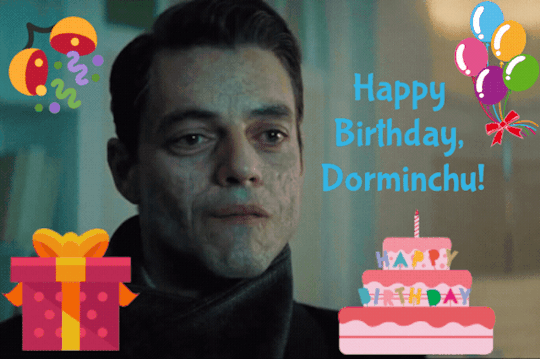
I want to wish you a lovely day and also want to take a moment to make my followers aware of your fantastic work as a fanfiction writer. Your writing style is unique and colourful. Of course I appreciate mostly the Lyutsifer Safin Fanfictions, especially when you write backstories for him.
The hired gun (Safin as SMERSH hitman)
Sorrow (Safin's childhood)
Entr'ance (Safin/Madeline, lemon)
are my favourite-favourite 😄
Dorminchu also writes for the Attack on Titan fandom and Mr. Robot, so check it out, please !
I hope my followers will find a moment to greet @dorminchu a good birthday ❤️
Taglist: @lokis-tardis-companion19 @infinitegalahad @koshi-sama @daughterofthesilmaril @cynic-station @ladyl0wkey @elliotmalek @ellen-the-wise @villainworshiper @cuckoo-on-a-string @thefluffiestseahorse @sapphicsandsupernatural @moon-stars-soul @edteche2 @gloriousdarkangelsworld @squidwujun @bearbruno14 @esconognosia @chevy2497 @ramicastiel @ellen-the-radiant @sakurasoulgeneral @ghoulsister1 @squidwujun @satanhauntedourfears @bearbruno14 @grumpyoutlaw @silverlambcaptain @neverendingstories00 @honestmysteries @one-boring-person @poptod @plumcurry @padawansubscription @yagurlny @desbeauxjardins @frombehindpaleeyes @elliotmalek @chieftyphoonchaos @villainworshiper @alessiathepirate
12 notes
·
View notes
Text
Thank you for the tag 🫶🫶🫶❤️❤️❤️ MY HEART IS FULL.
I only have one person to add.
@cuckoo-on-a-string
Seriously.
She is one of the OG sandman writers. She’s incredibly talented. She’s supported me from the beginning. I look up to her. She is brilliant and funny and awesome. Younger Gods. Hello Mr. Monster. Promises. Year and a Day. You name it, she can write it. Please check her out!!!
Support fanfiction writers
Support fan artists
Support fan gifmakers
Support people who make fan work
Support CONTENT CREATORS!
Content creators make your favorite shows, movies, books, artists, etc, more enjoyable. Appreciate them!
610 notes
·
View notes
Text
June 14, 2020
Stuck Together

Dresses by Gabrielle C - lemons; Evelyn K - tux; Callan R - Black Lives Matter
For the past three months, I have so appreciated sharpening my lens towards the creative gestures that this time has inspired. These musings began with a hunch that artists would play a significant leadership role in the resiliency that such crises require. While confirmed, my thesis has expanded to recognize that ALL humans are fundamentally wired to be resilient. And because innovation is a key ingredient of resiliency, people from all walks of life (professional artist or otherwise) have been seeking creative expression to tether them through these uncertain times.
For example, take these insanely fanciful prom dresses that teenagers around the US have designed in just 48 hours, using 40 rolls of duck tape and no other materials. I can only imagine to what extent feelings of uncertainty have been exacerbated for these high school seniors, already poised for one of the biggest leaps of their life. With the possibility of on-campus fall enrollment at new institutions threatened, and stripped of important rituals like graduation ceremonies and grad dances, these youth have had to contend with an abundance of shattered dreams. So, it was unexpectedly surprising to see the hope, compassion and beauty in the creations that resulted from this year’s Stuck at Prom Duck Tape Challenge. Browsing the 100’s of jaw-dropping entries on the contest’s website (https://www.duckbrand.com/stuck-at-prom/2020-gallery), there was not a single Covid Sucks, self-pitying design in the bunch. Instead, you can find tributes to essential workers and Black Lives Matter, mottos of solidarity, and an artful nod to “making lemonade.” Knowing that our future is in the hands of these thoughtful young people is perhaps the most encouraged I’ve felt during this entire pandemic.
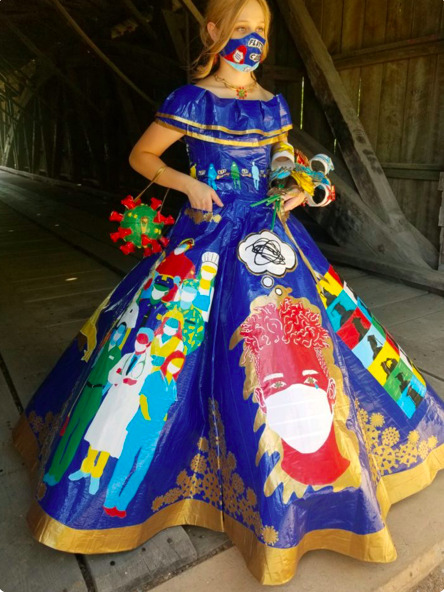
Dress by Peyton M - frontline workers
June 15, 2020
Covid Commissions
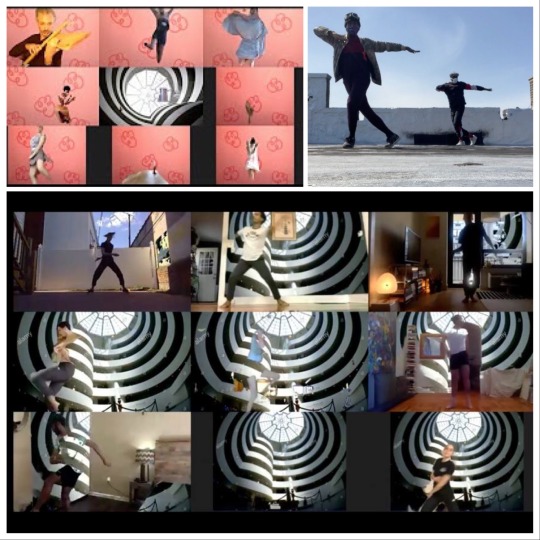
Various WPA Virtual Commissions - see link below
Physical distancing and other economic challenges, resulting from the coronavirus, have taken a huge toll on artists’ livelihood. Currently, many existing arts grants have been either cut or postponed, in order for governments to reallocate funding towards critical services like health care, transportation and housing. And while I believe that the arts are as critical as breathing, full-well contributing to our physiological, psychological and self-actualizing needs, they still fall pretty far down most people’s interpretation of Maslow’s hierarchy.

Thankfully, there have been numerous emergency relief funds available to pick up the financial slack for artists. So, these have provided much needed temporary help to cover living expenses. But they haven’t necessarily supported the creation of new work. Fortunately though, some institutions have recognized the essentiality of the arts by putting them front and centre of their funding priorities. One such organization is the Guggenheim, whose board and donors contributed $150,000 to their Works & Process Virtual Commissioning fund which supported performing artists from a variety of mediums to create up to 5-minute video pieces from home. Like Cooped, a project I referenced on June 4th, all of the resulting works can be viewed here:
https://www.youtube.com/playlist?list=PLJ08rQmWB63RFC3avQF-nDsneUXLrUd4X
As I mentioned earlier, we dabbled in a little commissioning ourselves, during quarantine. And here is the promised finished product by Natalie Warkentin (@morningmusings), the very talented artist of Bloom: A beautiful process of becoming. Her playful, vibrant piece has made a world of difference to our daily joy, with the inordinant amount of time that we usual out-and-abouters have been spending at home! And we were also thrilled to learn that it has, indirectly, already led to a second commission for her.

June 16, 2020
Piano Play
In surveying my peers, I’ve noticed that this has been a time for reconnecting with long-lost friends. As some of these old relationships have resurfaced for me, one of my favorite “icebreakers” has been to ask what new pursuits they’ve enjoyed during this period. For many, it’s been sourdough starters; others gardening; and some, learning French. But I’ve also found that many adults are taking up instruments, which makes me extremely happy. I can’t tell you how many times, throughout my career, after mentioning to a stranger, on a plane or elsewhere, that I was a flutist, they replied “Oh, I wish I played an instrument,” ... almost as if they were already dead. My habitual response is always to encourage adult music-making, and it’s one of the reasons that the majority of our non-profits’ arts programs target adult populations. While I fully support early childhood musical and artistic development, I don’t think these opportunities are nearly as lacking as those for “big kids”. One of my friends, in an effort to brush up on her Grade 4 childhood piano skills, recently asked if I could recommend some playable, accessible pieces in a variety of genres (from film scores to pop to classical). Since keyboard or piano seems to be the most common new instrument for people to learn later in life (with perhaps only ukulele as a close second), I thought it would be fun to post the list that I shared with her. Each of the scores, below, is available online, for free or purchasable download, and generally requires the player to use only one finger, in either hand, at the same time. For a final extra tip: Musescore.com has a 30-day free trial, during which you can download to your heart’s delight!
Regina Spektor The Call (from Chronicles of Narnia)
Sufjan Stevens Mystery of Love (from Call Me By Your Name)
Erik Satie Gymnopedie #1-3, & Le Tango Perpetual
Arvo Part Fur Alina
Olafur Arnalds Tomorrow’s Song
Thomas Neumann Theme from American Beauty
Yann Tiersen Valse d’Amelie

Icelandic pianist, singer/songwriter, Olafur Arnalds
June 17, 2020
Cause and Effect

I love the music of language. Perhaps it’s why my transition from flutist to writer has felt so natural. I rarely remember the lyrics to songs, instead hearing the syllables as a collection of phonetic melodies. I also experience sounds somewhat synaesthetically (synaesthesia being the neurological condition where certain senses, which are not normally connected, join or merge together. Like certain alphabetic letters being associated with certain tastes, or particular smells being connected to sounds). For me, musical sonorities have always been strongly linked to specific colors or shapes. And the geometry of certain words have very distinct and often pleasurable textures when they bounce around my mouth. Perhaps my favorite example of this is the Buddhist word for the “interconnectedness of all things”: Pratītyasamutpāda. More clearly defined, this term refers to dependent origination, or dependent arising, a Buddhist philosophy which states that all phenomena arise in dependence upon other phenomena. Simply put, it’s the law of cause and effect. The far-reaching global butterfly effect of Covid has made all of us keenly aware of this law. Like never before, we are now considering the consequences of our actions in a myriad of ways: like whether or not to touch a pedestrian crossing button with our hands, scratch our nose when it itches, or hug an aging parent. So, while the threat of this virus has had huge negative repercussions for many people’s physical and mental health, I can not deny that there is also a positive way in which it has reminded us of our interconnectedness. Of course, it’s a horrific shame that it took a deadly pandemic to wake us up to they symbiotic nature of all things. And, for my generation and those younger than me, (particularly in North America and other cultures who have not experienced war or famine or a health epidemic, first-hand, for more than half a century), it may only be global warming that has demanded we truly consider how our behavior impacts the people and environment around us. However, even the impact of that seems too large and slow for most to fully fathom. It’s why we still drive like fiends, strangle turtles with our plastics, and fly to Hawaii for weekend getaways (and, of this sin, I shamefully confess I’m guilty too!).
So, we clearly need all of the reminders we can get, which makes this recent contest I learned about all the more fitting. There is perhaps no one who has more artfully or playfully illustrated the nature of phenomenological cause and effect than Rube Goldberg. Maybe you have seen his machines that combine cuckoo clocks, toy rockets, ping pong balls and string in elaborate chains of events that result in a single action. The band OK Go is famous for music videos crafted around such devices. And here, you can check out an absolutely brilliant one of theirs, with a message that we all need to hear right now, This Too Shall Pass: https://www.youtube.com/watch?v=qybUFnY7Y8w
Everyday folks have also been trying their hand at making such contraptions, for the sole honor of being named winner of the recent Rube Goldberg Soap Challenge. And you’ll be amazed at what this Toronto family devised to earn the crown: https://www.cbc.ca/radio/asithappens/as-it-happens-tuesday-edition-1.5604697/toronto-family-thrilled-and-a-little-bit-surprised-to-win-rube-goldberg-challenge-1.5604698

June 18, 2020
Sensibility
My Uncle Len, a playwright and educator who has engaged in community arts throughout his career, has been a constant muse for me. But more than professional expertise, it has been his sensibilities that have served as my true inspiration. Len defines sensibility as “how we see, what we focus on, affirm and move towards in life.” He is so convinced it is the subject most necessary to study, at this time, that he has written a book about it - his life manifesto, if you will.
Len is simply one of my favorite people on earth. It’s hard not to adore a guy who decorates his exquisite garden with found objects, runs each of his theatre pieces as benefits for various charities, and tries paddleboarding for the first time at 85. This is right in keeping with the sensibilities he holds to be most critical in life, “beauty, fairness, and playfulness.” And while he’s worked on this piece for years, its message could not be more well-timed. Because, to use his words, imagine how effectively we could deal with pandemics, police brutality, and global warming, “if only everyone was rooting for everyone.”
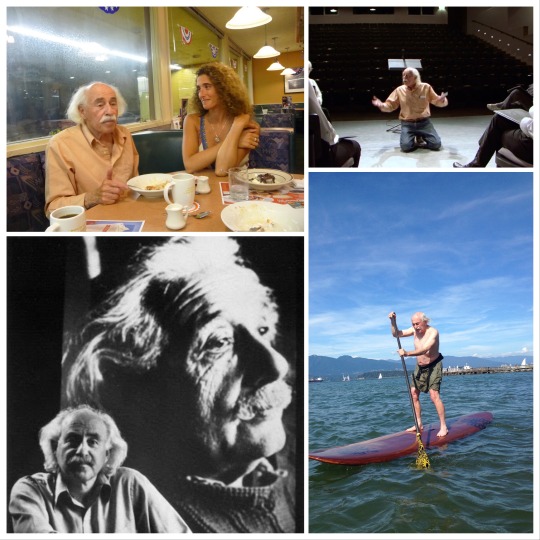
Len’s Einstein likeness is not lost on anyone. And he has made him (and his physicist pal, Niels Bohr) the subject of many of his theatre pieces, not because of their scientific prowess but because they are prime models of “beauty, fairness, and playfulness” themselves.
Like Len’s inspirations, Einstein and Niels Bohr, he possesses the rare ability to find unified principles in seemingly disparate things. In Sensibility, a child’s wonder for a butterfly is illustrated to be as important an ingredient for the welfare of humanity as the thoughtfulness these giants’ exercised, advising on the development of the atomic bomb. Through Len’s unique lens, the reader understands fairness from the perspective of a fifth grader dealing with bullying to a physicist harboring Jews in World War II. We see the critical need for playfulness in everything from driving a junk truck to making a theatre piece. And now, just as the specter of a dangerous virus is re-awakening our sensibilities to affect social change with unprecedented speed, this book is a perfect tale for the times. It concludes with the prescient and hopeful story of 1,500 activists, linked hand-in-hand at the Encirclement of Rocky Flats, while they protest a nuclear plant in 1983, ultimately resulting in its shut down. This exquisite, slender volume is packed with instructions on how to live a compassionate and fertile life. And the beautiful equation it proposes is: Essential life skills = Mastering a Childlike Quality squared (E=mc2).
Just released on Amazon, it is now available here:
https://www.amazon.com/Sensibility-Children-Albert-Einstein-Niels/dp/B088B59P9Z/ref=sr_1_6?dchild=1&keywords=sensibility&qid=1591823421&s=books&sr=1-6
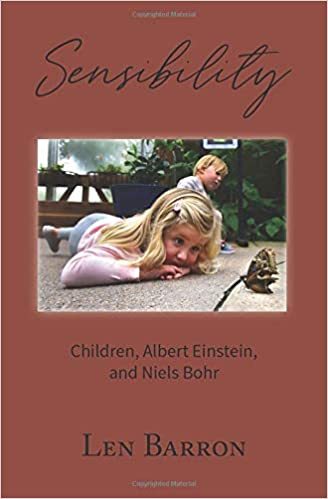
June 19, 2020
Comfort with Impermanence
Historically, humans have gone to preposterous lengths to deny and defy their impermanence. From Egyptian mummies, to cryogenic freezing, to time capsules left for future or alien populations to learn of our legacy. One such preservationist effort was the Voyager Golden Record - a 12-inch gold-plated copper disk curated by Carl Sagan, and sent to space with the 1979 launch, to portray the diversity of life and culture on Earth to whomever might find it. In addition to photos of athletes, mathematical formulas, and mothers with child, are recordings of birdsong, speech in 50+ languages, Bach, Chuck Berry, Indigenous songs and Indian ragas. To judge, for yourself, the accuracy of this audio/visual snapshot of human worth, you can listen to the full playlist here: https://www.youtube.com/playlist?list=PL4D51474AB7BE5595
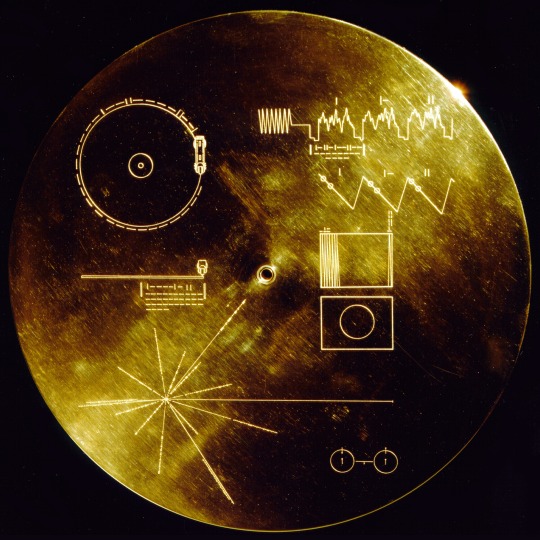
Despite these attempts to ameliorate our fears about our own mortality, our anxiety persists. And now, in these particularly uncertain times, with viral stats, regulations and restrictions changing on a daily basis, more than ever, we need tools to help us become more comfortable with impermanence.
For me, mindfulness meditation is the most expedient way to come to terms with the fundamental truth that all states of being are fleeting and everything is in constant flux. As we become the Watcher rather than the Doer, we observe that our thoughts and feelings are as fleeting as the phenomena around us. And simply recognizing and accepting this can actually bring great comfort. Poet Mary Oliver understood this well, as she describes evocatively in her poem, In Blackwater Woods.
Look, the trees are turning their own bodies into pillars of light, are giving off the rich fragrance of cinnamon and fulfillment, the long tapers of cattails are bursting and floating away over the blue shoulders of the ponds, and every pond, no matter what its name is, is nameless now. Every year everything I have ever learned in my lifetime leads back to this: the fires and the black river of loss whose other side is salvation, whose meaning none of us will ever know. To live in this world you must be able to do three things: to love what is mortal; to hold it against your bones knowing your own life depends on it; and, when the time comes to let it go, to let it go.
And so, too, I think it is time to let this blog go. At least for now. It feels, in its own way, like a time capsule of a very potent moment in our lives. And, as that, this infintissimal drop in the bucket of human thought feels complete. So, while it can seem frightening to be reminded of the speck in the universe that human history truly is, I actually take great solace from understanding our smallness. On this note, I will return to the same text that consoled me early in lock down. I also shared this with my dear Uncle Len, whose 87th birthday just happens to be today. As all people his age, his life has been particularly disrupted by this virus. But as someone who appreciates physics from the persective of the beautiful dance we all do with each other and the cosmos, he received these words with particular gratitude. It is a passage from Maria Popova’s March 18th Brainspickings newsletter, published just one day after the world shut down:
“Meanwhile, someplace in the world, somebody is making love and another a poem. Elsewhere in the universe, a star manyfold the mass of our third-rate sun is living out its final moments in a wild spin before collapsing into a black hole, its exhale bending spacetime itself into a well of nothingness that can swallow every atom that ever touched us and every datum we ever produced, every poem and statue and symphony we’ve ever known - an entropic spectacle insentient to questions of blame and mercy - devoid of why...The atoms that huddled for a cosmic blink around the shadow of self will return to the seas that made us. What will survive of us are shoreless seeds and stardust.”
This final entry is my 64th, a number that has been my favorite since I was a small girl, for its symmetric beauty (8 squared, 4 to the 3rd, 2 to the 5th). Interestingly, this powerful number is also frequently referenced in spiritual texts and throughout pop culture (the number of generations from Adam to Jesus; the number of “tantras” in Hinduism, the number of squares on a chess board, the number of crayons in the popular Crayola pack, and the number of Hexagons in the I-Ching). The meaning of Hexagon 64 is “unfinished business.” Therefore, the story, of course, will go on. Whatever windswept seedling will take root next, however, I do not yet know...

64th Hexagon combination in the I-Ching
0 notes
Text
Manhattan Mistress part 7

MASTERLIST
Pairing: Bucky x reader, Steve x reader, Tony x reader and OC!Casey (daughter of Y/N and Tony)
Summary: It’s Bucky’s birthday and you surprise him. Inspired by “Waiting Game”, Banks.
Word count: 2.236
Warnings: A bit of smuff (you can thank @mrshopkirk for the abbreviation of fluffy smut!) Talk of murder, cheating and death (honestly, what’s new?). Please do not read belong the cut if you’re not comfortable with any of forementioned!
A/N: Dedicated to my favourite mob AU writer @caplanbuckybarnes. Enjoy sweetie!
Part 6: the white noise

The waiting game
I’m thinking it over The way you make me feel all sexy but it’s causing me shame I wanna lean on your shoulder I wish I was in love but I don’t wanna cause any pain And if I’m feeling like I’m even, we’ve got nothing to gain
“She’s been taken care of, boss,” Clint says at the other end of the phone. I sigh and throw a quick peek at Bucky’s direction where he’s running on the track, a sweat-slicked white t-shirt emphasising his sculpted muscles and well-defined abdomen. It sticks to his skin like glue and I wish I could just walk over to him and lick the salt off his skin. After our one night of sin, my feelings for this man are stronger than ever and if I don’t keep them on a tight leash, I am going to lose everything.
“Good. Did she suffer?” I sound eerily matter-of-factly but Clint does not give it any thought, resuming to business as usual.
“I asked her if she had any last wishes. She said I just had to bite the bullet and get it over with. Morbid sense of humour that girl.” Clint chuckles and after another heartbeat the line goes dead. Looking down at my phone, I see the battery has died and curse internally.
“Hey babe, what are you doin’ here?,” asks a familiar voice, a seductive tone to the Brooklyn accent dripping from his words like a bittersweet dream.
As soon as my eyes lock with his, I feel the knot in my stomach tighten, begging me for release as every single drop of arousal pools between my legs, soaking my panties in the blink of an eye and all it took was just Bucky.
“I’m just looking for my lover,” you smile sweetly. “Happy birthday, Bucky.”
“You remembered?,” he asks both bewildered and flattered. He looks like a school boy, with a rosy blush flustering his cheeks and a boyish grin illuminating his features.
You feign being hurt and offended by his insinuation. “Of course, what kind of girlfriend would I be if I didn’t remember my boyfriend’s birthday?” But where there was first a sign of endearment in his eyes, it has now been replaced by a hard scowl.
“I am not your boyfriend, Y/N,” Bucky huffs at you. “You are Steve Rogers’ wife and Tony Stark’s ex-wife, but you ain’t my girlfriend. If you were in fact my girlfriend, I would be able to parade you down the street, my arm slung casually over your shoulder and a proud smirk on my fucking face. But I can’t do that, now can I?,” Bucky lashes out at you, an unseen anger bubbling underneath his confident bad boy exterior.
What if I never even see you ‘cause we’re both on a stage Don’t tell me listen to your song because it isn’t the same I don’t wanna say your love is a waiting game
You don’t know what to say to him. Unbeknownst to you, Bucky has been holding back his feelings of indignation for a very long time. He loves you and he is darn sure you love him but he can’t stay in the shadows for much longer.
“I’m sorry Buck, I really am. I wish things were…”
“Different?,” he interjects with a sad half-smile. “Me, too, doll. Me too.”
“I wish I would’ve never met Tony because then I would also never have met Steve. I wish that my Dad would’ve seen past his own egocentric beliefs. I wish I could make it all undone. I wish Casey was yours and I wish you were mine.”
“Be careful, doll,” Bucky shushes as his pointer finger softly caresses his plump lips. “You shouldn’t talk like that.”
His eyes are stern but his body language tells me otherwise, a prominent bulge in his track pants giving more than enough information on his current state of mind. He’s been giving it just as much thought as you have, but you can’t dwell on the past for too long before it corrupts your future.
“What?,” I contest with my head held high, the Manhattan pride speaking with my tongue. “There’s no one here, Buck.”
“You never know. The streets have been busy lately, ever since the police found that body in the river.”
I had almost forgotten about the gruesome discovery the police did last night when a body came floating to the surface and some secrets better left buried were dug up as well. “I had nothing to do with that,” you say curtly, dismissing the subject at once.
It still doesn’t sit well with Bucky and he doesn’t want to push or pry either, but it’s been at the back of his mind for a long time now. “I know about Jess,” he utters in a husky voice, low enough for only your ears to pick up on his words.
Your head snaps in his direction, a rigid glare daring his piercing blue eyes to meet yours in total honesty. “Who the fuck told you?”
“After that whole situation with Pietro, Sam got really fidgety. One night his delivery guy, Thor, came in and he offered him a very pricey bottle of liquor for free but you know, in this life nothing’s for free,” Bucky shrugs casually whilst shimmying out of his shirt and throwing it over his shoulder, exposing his drool-worthy pectorals as, to your great amusement, he flexes them to keep his muscles from going sore.
“So Sam asked the guy what he wanted from him and he simply said he wished to speak to the boss about the disappearance of two of Loki’s strippers because apparently Loki is his half-brother or something, I don’t know.” Bucky cards his fingers through his chestnut hair. “Point is, Jess knew about Sharon’s disappearance and since she was fucking Loki, he knew about it too.”
So if Jess was screwing Loki, he probably pulled some strings to get her the job at Sam’s bar. Was she working as his spy the whole time? You deemed it impossible because she was only there for two weeks but then again, Wanda’s been working for you for exactly that long as well. She doesn’t report back to you on a daily basis but when she does, she’s thorough and precise, giving you detailed descriptions of everything you need to know that goes on at the Cuckoo’s Nest.
You’re not surprised to learn that every single time Bucky visits Sam’s bar, basically every woman that lays her eyes on Bucky tries to make a pass at him but you’re also really relieved and maybe a bit privileged that he turns down every single one of them, earning a few curious looks from Sam but he never questions Bucky about his motives, just lets him do his thing. That’s the way it’s always been between Sam and Bucky, a bit of playful banter but never anything big.
“That bitch,” you hiss between clenched teeth. “I wonder where she got the information from.”
“It could’ve been Natasha but she didn’t like Jess either, so I don’t think she ran her mouth on Sharon. Maybe Sam’s ears picked up on it? Or what about your handyman, Clint?”
“How do I know it wasn’t you?”
Baby I’m thinking it over What if the way we started made it something cursed from the start What if it only gets colder Would you still wrap me up and tell me that you think this was smart 'Cause lately I’ve been scared of even thinking 'bout where we are
“Love,” Bucky sighs as he leans in closer to kiss the crown of your hair seeing the puzzled look in your eyes growing steadier.
He cradles your face in his hands and throws a quick look over his shoulder to check if you’re still completely alone at the tracks. When there’s not a single soul to be detected, he returns his attention and affection towards you. The kiss isn’t all tongues at teeth, at first it was but after you give up your pursuit for dominance, Bucky’s ministrations become more gently, more softly moving his lips against yours. It’s as if your instinctively imprinted on Bucky because every fibre screams for him.
“I can assure you it wasn’t me,” he promises in an earnest tone. “At this point, it could’ve been anyone,” he sighs against your lips when you break away.
“Clint’s not it either and I trust Natasha to remain tight-lipped,” I conclude before getting up, straightening my dress and taking his hand in mine before moving away from the tracks and towards the car.
Bucky almost stumbles over his feet by the force I’m dragging him along with me yet his eyes never leave my form, trained on my generous backside. He’s a guy after all. “I need to fuck right now and you deserve some birthday sex, big boy,” I explain to him and he simply smiles down at me with that ridiculously attractive lopsided grin.
“Sounds good to me,” he chuckles softly.
I quirk an eyebrow at him. “You okay with me just using you for sex like this?”
“You’re not using me for sex, Y/N. You love me and I love you. Sex is just our way of expressing that love for one another in a fun way. So no, I don’t mind at all.”
Even though you don’t like to admit it to yourself, the sex with Bucky is different and it has been different for a while now. Even now, when you’re sucking him off in the backseat of Steve’s favourite ride, he’s reluctant to completely let loose. His hands have a vice-like grip on the leather seats, hips bucking into your mouth in delight and with fervour. His grunts fill the atmosphere drenched in the scent of sex, his long hair sticking to his forehead as his arousal grows.
“Easy, doll, you’re so eager,” he pants as your lips circle the angry red tip of his cock before taking him all in at once.
Relaxing your throat, you bob you head up and down at a dedicated speed, determined to get him off at least once before riding him like you usually do. Swallowing around him not one, but twice certainly does the trick and as your fingers tease his balls with featherlight touches, Bucky’s in seventh heaven faster and higher than he’s ever been before.
Normally he’s the attentive lover, never too tired to go again or afraid to try something else for a change. When you need him to be rough, he’ll pound into your with reckless abandon. If you want him to ruin you completely, he’ll deny you the entire night and let you experience the most wrecking orgasm of all in the faint glow of the early morning light.
“Fuck, Y/N,” he grunts lowly as he comes into your mouth, his hot cum spurting past your lips and trickling down your bare chest, your lacy underwear long discarded. “Fuck fuck fuck, I fucking love you, baby doll.”
And then there are still the moments where he is the Bucky you’ve known your entire life, the sensitive boy with the enviable lips and the mischievous touch. The man that will eat you out like he’s been starving for your juices his entire life. The man that will take care of you with his fingers and his mouth without even complaining once. He’s also the man that will make love to you at any given moment because if there’s one thing that will ever exceed the mind-blowing sensation of a good and decent fucking, it’s Bucky Barnes making love to you.
What if I never even see you 'cause we’re both on a stage Don’t tell me listen to your song because it isn’t the same I don’t wanna say your love is a waiting game
His fingers tangle in your hair, gripping the roots tightly and pulling you off of him. You release his dick with an obscene pop, licking your lips at his salty flavour. Bucky hooks his hands underneath your legs and brings you upwards to his chest until you’re straddling him. Since you’re not wearing your thong anymore, you can easily dance your coated folds across his hardening length, extracting a strangled moan from your intoxicated paramour.
“Just get on with it,” Bucky grumbles before capturing your lips in a searing kiss.
Repositioning yourself until you find a comfortable position that works for the both of you, you lower yourself onto his penis and whimper softly at the slightly burning sensation tingling your cunt. Soon the car is filled with the sound of skin slapping against skin, your hands digging into Bucky’s shoulders as your vagina milks his second orgasm from him. You follow not soon after and collapse on top of him, Bucky’s lips tracing your jawline and settling for that sweet spot in the crook of your neck, sucking a small bruise.
“I love you, Bucky,” you whisper to him as your fingers move away the mess of hair in front of your eyes. He looks down at you, fondly and lovingly, buzzing with post-coital bliss as his fingers drawing nonsense pattern onto the soft flesh of your bum. “Happy birthday.”
“Thank you, Y/N,” he replies hoarsely before cracking up at the sound of his thoroughly fucked voice. You really did a number on him.
Part 8: the heathens
@mellifluous-melodramas @mrshopkirk @winterboobaer @kiwi71281 @a-little-hell-to-raise @unpredictable-firecracker @marvelingatthewonder @emilyinwonderland3 @hardcorehippos @iiharu-kunii @knittingknerdy @winterwolf57 @dontbeamenacetotheforce @shamvictoria11 @theoneandonlysaucymo @bovaria @marvel-lucy @marvel-ash @thedragonblood @movingonto-betterthings @blacwings-and-bucky-barnes @marveliskindacool @redroomproperty @feelmyroarrrr @imamotherfuckingstar-lord @seargantbcky @seeyainanotherlifebrotha @meatballevan @amrita31199
#marvel#marvel imagine#marvel fic#marvel fan fic#marvel fanfiction#tony stark#tony x reader#chris evans#steve rogers#steve rogers x reader#steve rogers x bucky barnes#bucky barnes x steve rogers#bucky barnes#bucky x reader#bucky barnes x reader#bucky#bucky imagine#james buchanan barnes#james barnes#james bucky barnes#sebastian stan#mobster au#marvel mobster au#mobster!au#mobster#robert downey jr#robert downey junior#rdj#fan fiction#fan fic writing
93 notes
·
View notes
Text
Oh my gosh!! This is absolutely beautiful! You are on fire! The atmosphere and the description of Sibyls and Safin's walk. The letters. This chapter is really worth the wait. Thank you!!
Wild Garden: Chapter 2

Master list
Chapter summary: The entanglement begins with hemlock and oak trees.
A/N: Thanks to @dorminchu for beta reading! Everything changes in the next chapter. Let me know if I missed you on the tag list - has been a bit of a week.
Chapter warnings: briefly referenced child abuse/neglect, language, stalking, non-consensual surveillance
His love had larkspur eyes.
A glance poisoned him, the symptoms manifesting as he left his little professor. His pulse raced. His chest tightened.
A year of careful planning brought him close enough to touch, but only for a moment. Danger came to her door and she greeted it blithely. It felt like a game. How close can I get before you notice me?
Fear took some of the sweetness from their meeting. Having seen how easy it was to approach her, to draw near enough to strike, his practical concerns grew. Others noticed her at the funeral. He wasn’t worried about the FBI and the CIA keeping an open file, and MI6 didn’t pose much of a threat. She had no value to their scale-covered eyes, but the dogs of Spectre still loyal to Blofeld must be curious about the aberration, as he had been. Blofeld still drew breath, and that worried him most of all.
He needed to be patient. He’d crafted his schedule to coincide with his betrothed, the little professor. Carefully orchestrated accidents put him in her way, rushing through what should’ve been decades of slow introduction.
A hurried courtship was better than none at all, but he wondered how much risk he could stand before he gave her the protection she deserved. Covert eyes and ears in this little college town were not enough. She deserved a fortress. An army. A dragon to guard her tower.
She was his wish made flesh, a promised future grown back from ashes. His parents’ final gift. He’d go to any length to protect this second chance.
Already, he hungered for their second meeting, and he grated against the slow pace Professor Falsom set. The elderly biologist, assigned as his temporary guide, met him at the edge of the university’s nature preserve, within walking distance of campus, after his final class. The Friday afternoon sent about half the students scurrying home, and the rest lunged into the weekend with abandon. They left the woods quiet, perfect for a chance encounter with a dryad.
As the professor pointed out native species, discussing shifting habitats and the threat to wild biomes, they moved from meadow to forest. The trees muffled the noise of the world outside, and as the loamy path swallowed their footsteps, they came to a clearing. A handful of art students sat on stumps staggered around a small campfire where a woman in a luridly bright caftan – their teacher – kept busy with a kettle and cups over the small blaze.
Safin spotted a satchel left at the foot of an old oak tree, set atop a familiar pair of waterproof sneakers.
He followed the line of the trunk up to the first, broad limbs and found the object of his desire sitting above their heads. With a book in hand and a bare foot swinging idly below, she looked like some Pre-Raphaelite fantasy, a nymph at home out of reach of human hands. Agents and spies had sent him reports of this behavior, how she climbed trees to relax and scrambled through windows when she was running late.
He was not prepared for the way it affected him in person. Happening upon her in her sacred grove, with the sunlight kissing her honey-brown hair gold, she looked like a painting, not a real woman he’d touched the day before.
She must only be awkward in the real world because she didn’t belong there, but he could remove her from it forever.
Professor Falsom noticed his colleague and cleared his throat.
Sibyl lowered her book, peered down, and smiled at them. The expression stirred an unfamiliar warmth in his chest, and he folded his hands into the sleeves of his jacket as he considered the wonders of his condition. Poisoned, for certain.
“Gentlemen.”
With a snap, the book shut, and she swung down with surprising alacrity for someone who tripped so often on the stairs. She must’ve begun her day at the right time with the right amount of caffeine.
Safin smirked to himself as she dusted crumbled lichen from her clothes. Professor Falsom noticed. The old biologist knew his fellow professor well, and Safin knew he participated in at least one campus betting pool regarding faculty romances.
He was also old and had more than one reason to hand off his charge.
“Since we’ve already interrupted you,” Falsom wheedled, “would you mind showing our guest around? We’ve been through the meadow. You could show him through the woods?”
Peering at the old man, immediately aware of his machinations, she lifted a quizzical brow. “Did you leave the stove on?”
Falsom, to his credit, didn’t blush or splutter. He laughed and said, “Left the stove on, forgot to feed the turtle, and I’m sure I have lab reports waiting to be marked.”
“I’m sure,” she echoed.
She took a moment to appraise Safin. It was the first time she’d really looked at him, and he wondered what she saw. In the office, she behaved like a professional, however tired and disheveled she may have been. He’d been a footnote in her day, however unusual. Now she must decide if he was safe to walk with, someone worth cultivating conversation with as she sacrificed a free afternoon.
As she considered, she moved, her thumb sweeping under her knuckles, head tilting, feet shuffling as she adjusted her stance.
“Sure.”
As Professor Falsom said his goodbyes, she picked up her shoes and stuffed them in her satchel. The book – Picnic at Hanging Rock – found its place in the bag’s front pocket, safely away from the dirty shoes. Falsom returned the way they came, and she pulled the bag’s strap across her chest, waving for Safin to follow her towards the fire.
“I need just a minute,” she said, indicating one of the empty logs. “If you wouldn’t mind?”
He nodded, silently assuming the seat. For all his planning, he was still an interruption in her regular life, so he would sit and wait and study everything but the woman he most wanted to watch, because too many curious eyes in the clearing would catch him staring. He wanted to be alone with her so he could drink in the sight of her, the sound of her, to be the sole focus of those larkspur eyes, but as he kept reminding himself, he must be patient.
Bare feet stopped in front of him, and he looked up to find her waiting for his attention, a cheap tin camping mug in hand. He had never felt so close to the underworld, a shadow marveling at the sun. She smiled at him.
“Would you like some tea?”
He accepted the warm mug, letting his fingers press against hers.
“Thank you.”
How easy it would be to catch her up and pull her away from the world, away from all the things that could hurt her. Sharp stones and falling trees. Cold rain and strangers with wandering eyes. His fingers spasmed around the mug. He didn’t drop it. Even in this burst of emotion, he had too much control for that, unlike his darling, his betrothed, who slipped and tripped and laughed off the bruises and cuts like poison couldn’t seep in the wound and her blood wasn’t too precious to spill.
A fresh grudge grew as he watched the woman he ought to have already married. He was a stranger to her, alienated by the years Spectre claimed, and he envied all the casual acquaintances and colleagues she readily touched and laughed with. He should’ve had so much more time with her.
He’d prefer not to steal her away like a thief in the night. Not yet. She didn’t know him, and he had no interest in losing more of their precious time to a pointless struggle.
A breeze stirred a rain of maple seeds. As the art students swore and slapped down fluttering sketches, some of the detritus caught in her hair. She plucked out what she could find with her fingers, but he spied at least one winged seed caught behind her ear. His fingers itched to pluck it free, and he schooled the longing from his face. In this feigned guise of professionalism, her company was a torture as much as a blessing.
There would be time enough when she was entirely his. Long nights and sheltered days in the safety of his garden fortress. He could reclaim her as he’d reclaimed the Poison Garden, stolen back from the world that never deserved her. Until then, he would watch his lady of spring enjoy the autumn woods and wait patiently for winter to bring her to his side in the underworld.
-------------------------
Brianna was all too happy to dismiss Sybil from her chaperoning duties. It wasn’t like she’d been doing much to herd the art club attendees, anyway.
“The feral beasts are all settled in and working,” the art professor said, eying the students. “I have the fire under control. Go have a nice walk with the mysterious stranger.”
Sybil wished her copy of Picnic at Hanging Rock was a hardback for the express purpose of beating the grin off her friend’s face, but it wasn’t, so she didn’t. Damn if the Brianna’s giggle behind her back didn’t inspire plans for revenge, though.
The donor had finished with his tea, and he quietly set the cup aside as she returned, rising to meet her. There were two paths through the woods. One led across the creek with a suspended bridge ideal for terrorizing jumpy friends with poor balance. The other wound by the edge of the meadow before curling deeper into the preserve around a small lake. She couldn’t help noticing the man’s slight limp, and decided against the bridge.
“This way.”
He fell into step beside her, keeping pace easily as they left the smoke and murmurs of the artists’ fire behind. Soon the only commentary on their progress whispered down from the trees and irate squirrels, but the silence wasn’t entirely comfortable. She made a poor tour guide, and everything she wanted to say pushed the limits of professionalism.
“I apologize for all my colleagues,” she said at length. When he looked at her, brows raised, she considered dropping the issue and starting over. If he hadn’t noticed all the less-than-subtle winks and nudges from Falsom and Brianna then good for him.
“Doctor Safin –”
“Lyutsifer.”
She paused mid-step, turning to face him properly. “I’m sorry?”
“My name,” he said, “is Lyutsifer Safin.”
Oh, god, he was named for the devil. Brianna would have fits. The teasing would never end, and Sibyl knew she’d find doodles of handsome, horned angels shoved under her office door for weeks.
“And you want me to use your first name?”
“I would prefer it.”
His low, dark voice held an invitation. Since she had no idea where that invitation may lead, she hesitated to accept.
“Why?”
Safin resumed their walk, and she had to skip a few steps to catch up. Still waiting for an answer, she watched his eyes swept the autumn-tinged foliage, his hands twisting together under his chest.
“You have a doctorate, I believe. Would you like me to call you Doctor Byrde?”
“No.”
He looked to her, dropping the burden of discourse back to her shoulders. She’d been the one to ask for an explanation, but she’d have to provide one first. He clearly had no intention of playing by the usual rules. Getting anything out of him would take work, and she’d have to pick her course carefully.
As a child, she cherished the power to force reactions out of adults, rip off masks and change a scene’s dynamic with a few words or pointed glances. She didn’t exactly grow out of it, but she did grow up, and she found power in other things, so she didn’t have to stab with her sense of humor so much as luxuriate in games with her friends.
The problem was, she wasn’t at all sure this was a game, no matter how tempted she was to play into Brianna’s teasing and indulge in a battle of wits with the ‘mysterious stranger.’
“I only use the title when I need to make a point.” Because he’d taken a little too much control, she added, “And I don’t believe I have anything to prove to you.”
He smiled, nodding along like she’d given him the answer he wanted. Fine. She wasn’t afraid of him.
“If we’re going by first names then I guess you should call me Sibyl. Everyone else does.”
Another tacked-on warning not to get ahead of himself, but the smile remained – cool, calm, collected, and pleased in a way she couldn’t put her finger on. His hooded gaze looked so certain, so confident, like he knew the end of a path she didn’t know she was walking.
It was her turn to wrest something from their discussion.
“What inspired your donation to the university?”
Again, he answered with a question. “What inspired you to work there?”
She shook her head. He’d reached the end of their symmetry. “Definitely not the same thing that motivated you.”
Another expectant look asked for a story, but she laughed it off.
“I just met you.”
“And yet we are on a first name basis.”
She squinted at him, not quite glaring, but leaving her scrutiny bare.
His clothes, like his fancy town car, put her off. They had an austere beauty that belonged in a very different world, and they screamed money. The kind of wealth that blotted out conscience. She’d seen it, growing up with boys convinced of their own virtue as they invented new ways to punish her for existing.
For the first time since their introduction, she felt vulnerable. Her bare feet would bruise and break under his boots, and his loose-fitting jacket could hide an entire armory. Even if someone heard her shout for help, the people who’d come running would be just as defenseless in the face of true violence.
The warm sun dipped behind a cloud, and Sibyl’s arms erupted in goosebumps. She marched ahead, fighting her instincts as she let him catch up again, shark eyes studying her as she’d been examining him.
Survival instincts itched at the back of her thoughts.
He knew something. It shouted from the glint in his eye and his evasive responses.
Maybe her family name drew his curiosity, or maybe he thought she had some scrap of her family’s fortune to offer. She’d refused her family’s legacy entirely, and she’d made no secret of it. But what else could he want?
Her eye caught something deadlier than her guest, and she bit her tongue to stop from swearing out loud. Doctor Safin – Lyutsifer – halted beside her, following her gaze as she glared at the offending stalks of white flowers.
“Poison hemlock,” she said.
“A weed in your nature preserve?” he asked, lightly mocking.
“There’s no such thing as a weed in the wild garden, but these are invasive. Not to mention toxic.” She should inform the groundskeeping crew. If poison hemlock showed up in the preserve, it would be on campus, too, and unwary student workers could get hurt.
So easy to mistake for wild carrot and Queen Anne’s lace, the fact it had taken so long to invade the university’s space was a small miracle. Its sudden appearance had been inevitable, but she didn’t like seeing a killer in her place of peace. It felt too much like an omen, and she crossed her arms against the chill growing inside.
She moved on, slower than before, trying to explain her concern to the attentive stranger. “The stems are hollow. Kids used to die after cutting whistles from them.”
“But not anymore?”
“Whistles can’t compete with Nintendo.”
She didn’t know how to read his silence. He wore a placid mask: jaw lifted, mouth straight, brows low. A stray beam of light caught on the jagged lines and pits of his skin, and it dawned on her that of all the things she wanted to know, she’d never thought to ask about his scars. They seemed to belong. His face was too old and his voice was too young. A man out of step with his soul, a little removed from his own humanity.
The scars looked correct, like he might’ve been born that way. She struggled to imagine his face without them.
Their strolling pace eventually brought them around the lake and back to the parking lot. As the trees thinned, the gleam of polished glass spiked through the fading leaves, and the end of their walk came into view.
“I must leave in the morning.”
He stopped, turned, prompting her to do the same and meet his eyes as he pieced together a goodbye.
“I’m not very good at talking about myself, but I’ve… enjoyed my time with you.”
Had she enjoyed their time together? He clearly expected her to say she had. He’d won permission to use her first name, and they talked about poisonous flowers. It was memorable at least, and she hadn’t died. She’d learned her colleagues’ ticks well enough to dance through most conversations, usually taking the lead, whether or not they realized it. This, though, this was a challenge, and she itched to rise to meet it, to spar and play. And as happy as she was to be safe, a whisper of danger suffused the man’s poise, his deliberate words, and she found herself tingling with the same rush she felt before leaping from a high place. The same drug she chased with skydiving and shark cages.
“If you’re ever in town again,” she said, “I’ll walk with you.”
His lips rolled in a twitchy smile, like he was trying not to laugh. “Then I look forward to it.”
She nodded, moving away, but his voice caught her before she’d taken five steps.
“Wait.”
Her heart stuttered, suddenly and inexplicably convinced she’d turned her back on a predator and she’d find a knife to her throat when she looked back. When she peeked over her shoulder, though, he only approached in stately calm, empty hands still clasped before him.
His eyes drifted from her face, and long fingers brushed her ear.
“Forgive me.”
She held her breath, looking for the spark to turn fear into dignified rage and failing spectacularly, when he brought his hand back – holding a maple seed.
“Oh.” What was the correct response? He didn’t have a right to touch her, but she wondered how long the little helicopter had been tangled in her hair, how long he resisted before he had to do something about it. Surely she couldn’t be angry over that?
Unsettled.
Surprised.
“Thank you.” Her voice sounded small and she hated it.
Another enigmatic smile curled through his scars.
“Take care of yourself, Sibylline.”
It wasn’t the version of her name she’d given him to use, but it sounded right with his accent and careful pronunciation.
“You, too.”
She wasn’t ready to use his name. She worried what it would mean.
Maybe next time.
-------------------------
She didn’t forget about Doctor Safin so quickly after their second meeting. It felt intentional, for all his pretense at serendipity. He hadn’t hurt her. Hadn’t threatened her. Hadn’t admitted to knowing more than he should, whatever she suspected. She kept revisiting the meeting in the woods as life continued without interruption for a whole week.
Friday, as she sifted through the small pile of mail delivered to her office, she found a letter in the sea of professional invitations and calls for donations from old honor societies. A proper letter. The heavy paper felt more like fabric as she examined the envelope, flipping it over to check it hadn’t been delivered to her by mistake. No mistake. Her name, written in the simplest calligraphy, preceded by her title, hovered over her English department mailing address.
She tried to guess who might’ve sent it. As far as she knew, none of her friends were getting married.
The team of lawyers trying to press her into accepting her family’s legacy – ensuring a fat payday from the Byrde coffers – preferred harassing her at home. Their letters came in soulless stock envelopes with printed labels.
Her family’s shadier connections wouldn’t bother with something so polite as a letter. Invitations appeared as six-foot-tall enforcers with persuasive sets of zip ties. Murdered pets and smiling men in suits stopping to rustle your child’s hair delivered threats. An apology looked like arsenic-laced cigarettes and cut brake lines.
She cut the letter open gingerly, curious but cautious. Inside, she found folded paper as soft and heavy as the envelope – covered in an elegant scrawl that could only come from an old-fashioned fountain pen. Beautiful. And time consuming. Leaning back in her chair, letting the sun light up the words over her shoulder, she began to read.
Dear Sibylline,
I enjoyed our conversation in the woods. If your trees and books can spare you, I hoped we might continue our discussion. The donation to your university’s science department is already signed and gifted. I would never insult your integrity, and I did not want to put you in a difficult position.
You offered to walk with me. Would you be willing to write?
Yours,
Lyutsifer Safin
The letter fluttered shut along the crease, but she still saw the words drifting before her eyes. Too formal to be casual, but too brief to ask for anything but a few words in reply. While she obviously found him interesting – she’d never met a character like that before – she didn’t know what caught his interest. He’d mentioned he wasn’t good at talking about himself. Maybe he was lonely. But she was willing to bet no one in the science department received a letter like this.
Curiouser and curiouser.
As she tapped the corner of the folded pages against her lips, contemplating, who should swan in but Brianna, fresh from the art department with paint under her nails and ceramics dust on her boots. She took one look at the letter and her eyebrows shot sky high.
“That’s a pretty piece of stationery,” she said, assuming the visitor’s chair. “Do you have a secret admirer?”
Sibyl scoffed, pushing the letter back in its exquisite envelope and then into her desk drawer. Safe. And out of sight. She’d hate to lose it.
“It’s from Doctor Safin.”
The eyebrows, only just starting to sink, floated up again with a clear question.
“The donor for the science department. The one who came to the woods during the art club outing.”
“Oh. Doctor Safin.”
She did not like the light in Brianna’s eyes or how long the Oh dragged on. Professor Brianna Tenning had fought to shepherd her fellow academic since Sibyl was a 14-year-old freshman with a shocking attraction to heights and no family interested in her awards ceremonies. They graduated together, and Brianna returned to teach the minute she had her master’s degree in hand. When Sibyl came back with three more degrees and no romantic partner, Brianna grew concerned. And involved.
Since Sibyl couldn’t explain any partner would be exploited – or executed – by her family, she let the older woman have her fun. Replacing the sugar in the art professor’s coffee stash with salt every now and again kept her from going too far, though both women liked to push boundaries. Which was why they were friends.
“So,” Brianna crossed her legs, settling in for the long haul. “What did your dark, mysterious stranger have to say?”
“He wants to start a correspondence.”
“Sounds romantic.”
“He didn’t say it like that.”
“Didn’t he? Let me see.”
“No.” She brushed her fingers over the desk drawer, ensuring she’d completely closed it.
Brianna’s knowing smirk inspired her to violence, but she liked every book, mug, and paperweight in her office. Otherwise they wouldn’t be there. Brianna was a lucky woman. As an undergraduate, she kept wadded-up balls of scrap paper in her bag specifically to keep Brianna humble.
“He’s weird, but I guess he’s your type.” The art professor glowed with smug approval. It might’ve meant more if Sibyl didn’t know for a fact Brianna had three hundred bucks riding on her love life. “I didn’t think that type actually existed, but here we are.”
No, no. She wasn’t psychic. She’d gotten away with enough for one friendly invasion.
“What are you talking about? I, Sibylline the Chronically Single, do not have a type.”
Brianna looked from her colleague to the shelf of gothic novels behind her and back again.
“Really?”
“Bold to assume my taste in fiction parallels reality.”
“You’re an English professor,” Brianna reminded her. “Your taste in fiction is your taste in reality. Which is why you’re single.”
It wasn’t entirely true, but Brianna wouldn’t be satisfied until she’d argued her into a corner or – better still – a date.
“Would you shut up and leave me alone if I told you I plan to write him back?”
“Do you?”
“Yes. Now go torment your students. Or your husband. That’s why you married him, right?”
Brianna laughed and stood from her seat. “I’ll be back.”
“Fantastic.”
Her friend had been gone all of thirty seconds before her Discord app pinged.
Damn, she was popular.
Benji’s icon caught her attention, and she jumped to read his message.
Up for Halo tonight?
She grinned, delighted and relieved that he’d survived whatever assignment kept him away.
I’m ready to blast your ass across a few screens, yeah.
Benji replied almost instantly.
Troll.
She had her usual answer prepared.
Try-hard.
-------------------------
He woke in a cold sweat, reaching for a cooling body that dissipated with his dream – lips black with poison, throat gaping open. Bullet holes, and toxins, and wicked men with knives paraded behind his closed eyes.
As his hand skimmed over the sheets his breathing slowed.
This couldn’t go on.
He needed his fiancé close and safe, away from the jagged fragments of Spectre. Away from Blofeld. Prison couldn’t hold that man, and he must know about Sibylline. Safin couldn’t imagine how she could’ve survived without his order, and soon Blofeld would find a new way around his guards soon, a way to make use of his stolen treasure. Her sudden and brutal death would threaten his stability, inspire him to rash action Blofeld could exploit. Easier still to steal her, lure him in with threats and torture.
After combing through her past and watching how she conducted herself in the idyllic bubble she’d crafted, he was confident she knew nothing about her true family. Until the liars dropped dead at her feet and the world’s governments tried to determine how she’d survived, running test after test, she had no idea she wasn’t bound to them by blood.
Safin would’ve accepted her even if she’d been trained to plant a knife in his back. He could correct violent tendencies with time, but he didn’t think he’d need to. Whispers of neglect and abuse had circled the Byrde family’s youngest for years, and the echoes lingered after their passing. She’d been more prisoner than progeny, even if she hadn’t known.
The minute he began to envision a future together was the moment he began to fear.
There was only so much he could do, half a world away.
Rising with a sigh, he crossed the room to a table full of monitors. Their correspondence sat in a little stack, waiting to be reread.
A small wooden box rested next to the envelopes. Two coils of hair, knotted together, laid inside – black and gold – the proof of their betrothal as children, and the evidence he used to confirm her identity. Tonight, however, the computer monitors held his attention. Views of her empty office, the rooms where she held class, and her warm apartment over the coffeeshop filled the screens.
His betrothed sat at the computer, one foot up in the chair, controller in hand, headphones blocking out the world. She giggled as she fought her friend, the man she sometimes called a cousin – Benjamin Dunn – in a virtual warzone. He’d watched their banter often, envious of her easy, relaxed way with the man. His love liked to tease. She sacrificed victories to fluster her friend, and she laughed hardest when Dunn was reduced to exasperated howls.
Tonight, it was a balm. Dead women didn’t laugh.
He needed to feel her presence in the room with him, and he took her first response from the pile, reading her words as her taunting filled the quiet.
Dear Lyutsifer Safin,
I’ve realized since our last meeting that I failed in my chief duty as a literature professor: I didn’t ask what you like to read, or if you enjoy reading at all. I’m very sorry to say we can’t be friends if you don’t. We’ll have to be civil acquaintances who only discuss invasive flowers and whether or not we’ve known each other long enough to drop our titles.
If you write the way you speak, you’ll answer my question with one of your own, so I’ll beat you to the punch and tell you some of my favorites. Then, if you don’t tell me yours, it will just be rude.
Kafka and Oscar Wilde are old friends, but I like Neil Gaiman and Robin McKinley just as much. I have a weakness for fairytales and their retellings, and when I’m not teaching Gothic Lit, I even read the Brontes for fun.
Now it’s your turn, and if you don’t play fair, I will bury your letter under my undergraduates’ midterm essays and forget to reply for two months.
Sincerely,
Sibylline Byrde
He reclined in his seat, feeling the cold of his home, content to listen to her voice. Soon enough, he wouldn’t wake alone in the night.
Tag List:
@cynic-spirit
#lyutsifer safin#lyutsifer safin fanfiction#lyutsifer safin x original character#writer cuckoo on a string
40 notes
·
View notes
Text
My Broken Heart Needed
The broken door of pure rosewood needed a carpenter to repair it; replenishing its distorted edges with loads of compassionate varnish and an array of hostile nails, The broken slabs of building needed an engineer to refurbish it; reinforcing its surface with lanky beams and columns; fortifying its gaping string of holes with rich chunks of cement and concrete, The broken pieces of cloth needed a tailor to stitch them; blend the scattered fragments together; to evolve the stupendous garment again, The broken checkbooks and torn documents of financial operation needed a banker to resurrect them; spawn ingeniously manipulative policies to ensure that all business bounced back to robust normalcy, The broken switchboards needed an electrician to configure them; intermingle the boundless conglomerate of wires to produce sparkling beams of untainted light, The broken fields needed a farmer to plough them; sow the right concoction of seeds and manure; in order to metamorphose the gruesome sand into blossoming land of enchanting fertility, The broken words of the book needed a writer to rearrange them; meticulously sort out the baffling jumble into magnificent lines of captivating literature, The broken spacecraft needed the scientist to remold it; splendidly synchronize its arms and tail; impregnate it with the most contemporary of machinery; to enable it to gush at electric speeds towards the heart of the blue sky, The broken ornaments needed the goldsmith to reinvigorate them; chisel the shards of unruly metal into scintillating necklaces of fabulous silver, The broken carving on the wall needed the artisan to harness it; convert its disrupted demeanor into one with astounding solidity and oligarchic magnificence, The broken shoe lying desolate in the attic needed a cobbler to mend it; transform its mocking and dusty caricature into one with exquisite shine and abundant lace, The broken gutter needed a plumber to renovate it; wholesomely stop the flow of spewing debris; converting the rotten stench emanating into one of placid and stringent calm, The broken painting needed an artist to embellish it; join all the horrendously massacred shapes into mesmerizing contours of the spell binding fairy, The broken bone needed a doctor to coalesce it; bond the severely depleted fragments together to give birth again to a rubicund entity, The broken song needed a musician to reconstruct it; embody it with jazzy tunes and revitalizing melody; profusely recreating its stolen glory again, The broken bird needed an ornithologist to rejuvenate it; apply balm to its torn feathers; in order to impart it with tumultuous force and propel it to fly, The broken watch needed a watchmaker to wind it; oil its rusty coalition of springs; so that it ticked incessantly as time drifted by, The broken law and order in the city needed a policeman to rectify it; instill a sense of impregnable security amongst citizens; with valiantacts of his dynamic bravery, The broken democracy in the world needed a flamboyant leader to uplift it; judiciously channelize all the energy of people for the betterment of this planet, The broken lawns sprawling disdainfully over colossal expanses of the valley needed a gardener to reinvigorate them; prudently squelch the unwanted weeds; in order to ensure that the roses bloomed merrily without parasites, The broken King needed a host of beautiful slaves to stimulate his dead senses; obey the most minuscule of his command; appease him thoroughly with dance; and the tantalizing cadence in their voice, The broken marriage needed a team of counselor's to recap it; solve the infinitesimal differences that had led to the execution of this bizarre event in life, The broken beliefs needed a sagacious saint to rebuild them; bring the abysmally lonely disciple closer to the realms of the omnipotent Ceator, The broken snapshot needed the photographer to reframe it; meticulously arrange the solitary chunks into a complete picture; depicting once again the smiling and boisterous family, The broken victim needed the pressman to alleviate her pain; highlight to the world in his article; about the plethora of lecherous atrocities committed on her impeccable body, The broken stomach needed a waiter to satisfy it; serving it with mouth watering delicacies and thereby ensuring that it succumbed to blissful and contented sleep, The broken laughter needed a clown to re-establish it; inundate its miserable life with unsurpassable amount of smile and ecstasy, The broken web needed a spider to reweave it; embedding its mercilessly split trajectory; again with silver threads of slime, The broken sea needed a battalion of fish and coral reefs to reform itself; relive the incredulous moment of glory when it had just been created in this Universe, The broken discotheque needed scores of impetuous boys and girls to enliven it; flood its dreary ambience with fiery passion; pulsating dance; and voluptuous movement, The broken history needed an archaeologist to recount it; search for the missing links and clues that once upon a time led to the formation of noble dynasties, The broken hive needed boundless number of bees to refill it; encompass each pore its persona with their discordant buzzing; and supremely sweet streams of honey, The broken vegetables needed a chef to realign them; prepare appetizing delicacies out of the shoddy mass of loose grass and fruit, The broken children needed a philanthropist to liberate them; fill their lives with all the jubilation and fantasy which they were so desperately bereft off, The broken mind needed a psychiatrist to retrieve it; bring it to proportion with the civilized society; from the corridors of despondency and lost oblivion, The broken ship needed a captain to coherently steer it; surge it forward with gusto and insurmountable exhilaration into the deep waters of the sapphire ocean, The broken army needed a brave and an audacious soldier to instigate it; see to it that it emerged victorious without the slightest of blemish to its motherland, The broken den needed the lion to enlighten it; prove it once again to the world that it harbored none other; but the irrefutable king of the jungle, The broken morning needed the cuckoo to animate it; drive away all the gloominess prevailing in the atmosphere; with the mesmerizing rhythm in its voice, The broken line needed a teacher to restore it; explicitly explain it to the student its symbolic meaning and astronomical importance, The broken voice needed a ventriloquist to harness it; extract the hidden melody to the summit of its capacity; portray to entire world the euphoric essence of sound, The broken automobile needed a mechanic to invigorate it; lubricate its dying parts; pumping tons of fresh air in its tyre; granting it the power to conquer the most treacherous of slopes, The broken balls needed a juggler to enhance their charm; spin them at mind boggling speeds; revolving them at all angles in the breeze before delectably collapsing on the bed of pure silk, The broken valley needed environmentalists to plant it with infinite saplings; see the inconspicuous nodules ripen into dense forests within a matter of fading months, The broken house needed a ensemble of detectives to find the culprits; hunt out the criminals who transformed the family living in perpetual bliss into deceased corpses buried beneath the earth, The broken women needed faithful husbands to alleviate their tale of deprivation; making them witness a new and vibrantly optimistic face of tomorrow, The broken lives needed a messiah from the heavens to rehabilitate them; shower their bereaved souls with immeasurable happiness, And my broken heart needed a girl who could fully comprehend my sorrow; love me like no one else did on this globe; bonding every beat of mine with her violently throbbing heart; healing every incurable wound of mine; blending her breath with mine for times and births immemorial.
0 notes
Link
I.
“IF I AM out of my mind, it’s all right with me,” announces the narrator of Saul Bellow’s Herzog. Moses Herzog’s personal life has gone to pieces and having a PhD might be part of the problem. His study of Romanticism — “eight hundred pages of chaotic argument” — molders in his closet.
In Bellow’s fictional worlds, being cultured and crazy often go together. The narrator of The Adventures of Augie March is Sancho Panza to a string of Quixotes. Augie can’t resist illusion-chasing screwballs — from his brother with his get-rich schemes to a lover’s ambition to train eagles in Mexico. Toward the end of the novel, Augie’s warship is torpedoed and he finds himself in a lifeboat with a self-described “psycho-biophysicist” named Basteshaw as his sole companion. Basteshaw confides that he has managed to create living cells from inorganic matter and prophesies that his research is on course to discover a serum which will finally end human ignorance, strife, and suffering. “If he wasn’t a genius, I was in the boat with a maniac,” reflects Augie. When Augie tries to signal to a passing allied ship, Basteshaw wallops him with an oar. The psycho-biophysicist would rather drift toward the Canary Islands, to be interned on neutral Spanish territory, in order to continue his research. They struggle, Augie prevails, and they are saved. What’s more, they were never anywhere near the Canaries: “This scientist Basteshaw! Why, he was cuckoo! Why, we’d have both rotted in that African sea, and the boat would have rotted, and there would have been nothing but death and madness to the last.”
After the rescue, Basteshaw is decidedly cool with Augie. “The power of the individual to act through his intellect on the reason of mankind is smaller now than ever,” opines the lunatic.
In his earlier books, Bellow took down the intellectual life playfully. From the 1970s on, he came to examine madness as a political rather than a purely personal phenomenon. To be deluded was more than a foible in a supposedly cultured world capable of genocide. Did intellectuals and writers bear some responsibility for the disaster that had befallen Europe? Or were Pound, Heidegger, Hamsun, Céline, and all the others just sideshow clowns, fundamentally irrelevant to the great events that unfolded, and perhaps interesting only as examples of a general malaise?
Bellow had been wrestling with these questions for decades, even if they were not immediately reflected in his fiction. During his time in Paris between 1948 and 1950, he heard firsthand about life under the Nazis and the deportations of Jews, and read Louis-Ferdinand Céline’s “crazy, murderous harangues, seething with Jew-hatred.” In 1954, when William Faulkner led a group of writers petitioning the United States government for the release of Ezra Pound from a mental institution — had Pound been judged sane, a death sentence for treason for his collaboration with the Axis would have been mandatory — the dissenting voice was Bellow’s. He wrote to Faulkner that treating Pound’s advocacy of “hatred and murder” as eccentricity rather than insanity was symptomatic of the stunning indifference to recent events: “[B]etter poets than he were exterminated, perhaps,” wrote Bellow. “Shall we say nothing on their behalf?”
II.
In 1945, Europe was threatened by famine and epidemic disease. Millions of refugees had to be resettled and ruined cities and infrastructure rebuilt. The postwar denazification policies imposed by the occupying powers in West Germany focused on rehabilitating all but top-level administrators in order to create a viable state that would be a bulwark against further Soviet advance west. It was not until the 1960s, with the return of prosperity and a semblance of stability in international politics, that the subject of genocide began to be addressed. The first steps in a historiography of the Nazi Final Solution were taken in the United States, most notably with the appearance of Raul Hilberg’s The Destruction of the European Jews in 1961. That year also saw the trial in Jerusalem of Adolf Eichmann, the logistician of the Holocaust. The proceedings, under the scrutiny of television cameras and the world press, included dramatic testimony from survivors. Hannah Arendt covered the trial for the The New Yorker, and recast her articles for the book Eichmann in Jerusalem: A Report on the Banality of Evil (1963). In Germany, too, a new mood took hold. For the first time, the West German state tried concentration camp administrators and others who had assisted in the massacre of civilians.
“Eastern Europe has told me a lot about my family — myself even,” Bellow wrote in 1960 after a journey he made the previous year. “[W]hat I saw between Auschwitz and Jerusalem made a change in me.” Among the stories he heard from survivors were those told by his own relatives:
Cousin Bella […] tells me of one of our cousins who now lives with her husband in Geneva. During the German occupation of Riga this cousin and her sister were slave laborers in a factory that made army uniforms. Before the Germans retreated they exhumed thousands of bodies from the mass graves and burned them. A sudden sensitivity about evidence. The two young girls were among the hundreds forced to dig up putrid corpses and put them in the flames. The younger sister sickened and died.
III.
Solomon Bellows was born in Montreal in 1915 to orthodox Jewish parents from the Russian Empire. In 1924, the family moved to Chicago. Yiddish was the language of the home. For the adolescent Bellow, religion was immigrant baggage to be ditched on the road to American modernity. He became a Trotskyite. At university, he studied the radical new social science of anthropology. The publication of argotic, freewheeling Adventures of Augie March in 1953 marked him out as a literary innovator.
By the 1960s, however, America had changed. The Chicago of Augie March no longer existed. Poor but dynamic neighborhoods had transformed into an inner-city wasteland of drugs, crime, and despair: “The slums, as a friend of mine once observed, were ruined. He was not joking.” Bellow began to reflect on what had been lost, turning back toward Europe and the Jewish world.
Bellow’s detractors identify Mr. Sammler’s Planet (1970) as the point when the young literary rebel became a middle-aged champion of the elitist culture of dead white males. He was called a misogynist and even a racist. And the depiction of the United States through the eyes of Artur Sammler, a Polish Jew and refugee, is certainly provocative: “New York was getting worse than Naples or Salonika. It was like an Asian, an African town […] You opened a jeweled door into degradation, from hypercivilized Byzantine luxury straight into the state of nature, the barbarous world of color erupting from beneath.” Sammler sees a generation seeking “the free ways of barbarism” while protected by a civilized order, wealth, technology, and property rights.
Sammler has landed in the middle of a cultural revolution where nobody over 30 can be trusted. On the shores of this new world, it means nothing that he has lost his eye in the war, that his wife has been killed by a racist regime, or that he has known the foremost intellectuals of interwar London. His voice is capable of speaking of an Eastern Europe buried under communist totalitarianism, of an Ashkenazi-Yiddish civilization obliterated by genocide, and an extinct interwar intellectual order. But nobody wants to know. It is as though none of it ever happened.
Sammler cannot relate to the stew of politicized thinking around him not because it is too radical for his tastes but because it is hopelessly innocent. If America is unable to comprehend what has happened not 30 years earlier on the other side of the Atlantic Ocean, then America is incapable of talking sense. Social breakdown is Bellow’s theme, but Sammler is not — solely — about the United States. In depicting countercultural America busting its mental seams through the eyes of a Holocaust survivor, Bellow is widening his lens in an attempt to take in the recent history of the planet. If in his earlier novels he was happy to study individuals who were “nuts” or “cookoo,” now he ponders the reality of insanity as a collective phenomenon.
Intellectuals deal in reason, but their subject — human life — refuses to act reasonably. “Like many people who had seen the world collapse once,” Bellow writes, “Mr. Sammler entertained the possibility that it might collapse twice.”
IV.
The idea that modern life makes an impossible demand on the individual mind is one of Bellow’s great themes. “Too much of everything,” says Augie. “Too much history and culture […] too many details, too much news, too much example, too much influence […] Which who is supposed to interpret? Me?” Augie has no clear idea of his own what this world is but he has a strong intuition that there are as many ideas of the world as there are human beings, that each is provisional, and that all are competing for recruits. Life is a project, reality an individual projection. In this, he sees to the heart of modern — American — life. He surfs the confusion of this world, freestyle; in place of trials and anxiety he has adventures.
But by the time Bellow came to write Sammler, he had a less thrilling take on the effect of so much freedom:
The many impressions and experiences of life seemed no longer to occur each in its own proper space, in sequence, each with its recognizable religious or aesthetic importance, but human beings suffered the humiliations of inconsequence, of confused styles, of a long life containing several separate lives. In fact the whole experience of mankind was now covering each separate life in its flood. Making all the ages of history simultaneous. Compelling the frail person to receive, to register, depriving him because of volume, of mass, of the power to impart design.
The idea that modern man recoiled in despair before meaningless choice and a deluge of information was one Bellow shared with Mircea Eliade, a colleague at the University of Chicago. Eliade had been a famous novelist in interbellum Bucharest and was widely acknowledged as the intellectual leader of Romania’s younger generation of writers and thinkers. He had settled in Chicago in 1957 and, as a philosopher and historian of religions, had enjoyed huge success with the English-language publication of his book The Myth of the Eternal Return, which had sold over 100,000 copies in various editions. Bellow had come to know him in the years prior to writing Sammler.
Eliade argued that man is religious by nature, and that the fundamental feature of religious thinking is the distinction between the sacred and the profane. The sacred is all that is unchanging and essential, the profane is all that is provisional, historical, and subject to decay. The basic characteristic of all religions, Eliade maintained, is that man makes sense of the world by cultivating an awareness of the sacred, and seeks through ritual to recreate it and participate in it. Mythical thought is an attempt to reconstitute the world of the sacred, which all cultures conceive of as a prehistorical Edenic era. Traditional societies impart meaning to existence by being centered on sacred time. Modern rationality recognizes only historical time, producing “spiritual aridity” and an anxiety that Eliade called “The Terror of History.”
Eliade was Bellow’s kind of European intellectual — polyglot, intensely erudite, with more than a dash of religious mysticism thrown into the mix. Bellow’s fourth wife, Alexandra Bagdasar, whom he married in 1974, was a Romanian expatriate from an old and very cultivated Bucharest family, and the Bellows and Eliades frequently socialized. Bellow and Bagdasar divorced in 1985. Eliade died in 1986, and Bellow delivered a reading at his funeral. At this point, Bellow must have believed that the “Romanian” period of his life was over. But rumors had long been circulating about Eliade’s association with Romania’s wartime fascist Iron Guard, and they became undeniable with the 1988 publication of Mircea Eliade: The Romanian Roots, 1907-1945 by Mac Linscott Ricketts, which uncovered a series of articles Eliade had written for the Romanian fascist press in the 1930s.
V.
Ricketts, a devoted pupil of Eliade’s, was interested in his master as a philosopher and literary figure. The section on Eliade’s political writings in the 1930s takes up a few dozen pages in a two-volume work of over a thousand pages — almost as though Ricketts had accidentally tripped over a bundle of newspapers while on other business — but the contents of these articles is stunning in the context of Romanian politics in those years. In them, Eliade comes across as another Basteshaw, theorizing manically while the boat drifts the wrong way; the serum that will end the ignorance, strife, and suffering of the Romanian nation, he proposes, is nationalism.
Eliade believed that democracy was inherently unsuitable for Romania, and that democratic politics was wearing itself out with its fixation on un-Romanian “abstractions” such as the rights of minorities and freedom of political expression. And when democracy wobbled, he argued, it tended to wobble toward anarchy and communism. Only a sense of national greatness and purpose could unify the nation. In a 1936 article titled “The Democracy and the Problem of Romania,” he wrote:
Whether or not Mussolini is a tyrant is a matter of complete indifference to me. Only one thing interests me: that this man has in fifteen years turned a third-rate state into a leading power […] In the same way, I’m completely indifferent to what will happen in Romania after the liquidation of democracy. If, in overcoming democracy, Romania becomes powerful, national and well-armed, and aware of its powers and destiny — history will judge this act.
Eliade was intensely anxious about the dominance of minorities in parts of Romania and about a presumed “invasion” of Jewish immigrants spilling in from the north. His concern with the physical decline of the national stock was among the intellectual banalities of the era; in one article he proclaims that Romania cannot assimilate foreigners as it did before because the peasantry was weakened by pellagra (from a change of diet), alcoholism, and syphilis — all, he observes, due to foreign influence.
Eliade fantasized of a coming spiritual revolution. By 1936, he was projecting a transfiguring “mystical spirit” and “Romanian messianism” on the Iron Guard, while writing for its press and being seen as its leading ideologue. Perhaps Eliade found the national dream so beautiful that he was willing to overlook the violent anti-Semitism of his fellow fascists. Or perhaps he had accepted that the Jews would have to absorb the inevitable collateral damage in the creation of a national state in which every Romanian had a sense of “belonging to a chosen people.” By 1938, he was convinced his country was on the brink of transformation and claimed that the fire of Romanian Orthodox Christianity was about to “dominate” Europe with its spiritual light.
In 1937, Eliade told his friend Mihail Sebastian that he supported the Iron Guard because he had “always believed in the primacy of the spirit.” Sebastian, who was Jewish, recorded in his diary: “He’s not a charlatan and not demented. He’s just naïve. But how is such catastrophic naiveté even possible!”
“I believe in the future of the Romanian people, but the Romanian state should disappear,” Eliade told Sebastian in October 1939. In September 1940, Eliade’s wish was fulfilled: Romania became a National Legionary State, with the Iron Guard ruling in alliance with the Romanian Army. By this time Eliade was abroad, having been appointed cultural attaché to the Romanian Embassy in London in April 1940, then to the embassy in Portugal in February 1941. In June 1941, Romania began fighting alongside the Wehrmacht. At this point, Eliade turned to nebulous theorizing on the common “Latin” character of the Portuguese and Romanian peoples, and the creative and civilizing destiny of the “Latin” race. In 1943, he wrote The Romanians, Latins of the East (a slim volume that Ricketts describes as “cultural propaganda”), in which he extols Romania’s historical destiny as the protector of the fringes of Europe from Oriental barbarians. The war in the east, Eliade says, in defense of “Christian European values” — Romanian troops were at this point fighting alongside the Germans to take Stalingrad — was the latest chapter in this glorious narrative of self-sacrifice.
Ricketts’s academic biography, curiously, never mentioned that the wartime Romanian state was responsible for the deaths of hundreds of thousands of Jews. But a compelling 1991 essay in the New Republic by expatriate Romanian writer Norman Manea clearly connected Eliade with Romanian fascism. A second New Republic essay by Manea, in 1998, focused on Mihail Sebastian’s Journal (1935 to 1945). The Journal, which documents Romania’s slow slide into fascism, was published for the first time in Romanian in 1996. Along the way — as in the extracts quoted above — it records Sebastian’s sadness and perplexity at the deterioration of his friendship with “Mircea,” as Eliade’s commitment to the Iron Guard intensifies and his public expressions of anti-Semitism become more marked.
It must have occurred to Bellow by the late 1990s that Eliade had reasons of his own for feeling “a terror of history” when he asked rhetorically, in his best-selling book, how man “can tolerate the catastrophes and horrors of history — from collective deportations and massacres to atomic bombings — if beyond them he can glimpse no sign, no transhistorical meaning.”
VI.
When I met Norman Manea in 2014, on one of his trips back to Romania, I suggested that knowledge of the Holocaust as a Romanian phenomenon was not widespread in the United States in the 1980s and 1990s. “Absolutely not,” he agreed. “And this was another shock [for Bellow]. And Eliade was this great intellectual, praised in America.”
Manea and Bellow met on several occasions in the 1990s but the subject of Eliade was tactfully avoided, though Bellow certainly knew what Manea had written about Eliade. (In a letter to Philip Roth in 1997, Bellow asked for a copy of Manea’s article, remarking, “You do well to direct me, or connect me, to Eliade.”) “There was no mention of him and there was certainly at the beginning a reluctance, on his part, to meet me,” said Manea. “He was a very close friend with Eliade, he knew a bit about this story but not enough. And suddenly he felt that he was in a kind of story where he may be also partially guilty, because he was friends with him. Philip Roth used to tell me, ‘Look, Saul smells an anti-Semite a hundred miles away.’ Well, this did not occur in this case and it’s not by chance. Eliade was a refined intellectual.”
There is an additional reason why Bellow may have had difficulty discussing his friend with Norman Manea. In 1942, while Eliade was serving the regime in Lisbon, Romanian Jews were being deported to camps in Romanian-occupied Ukraine. The five-year-old Norman Manea, along with his family, was among those expelled. Over a hundred thousand of the deportees died in the camps, on the road of cold, famine, and disease, or from incidents of random violence. It is estimated that around 400,000 Jews were killed by the Romanian authorities in Romania and in the area of Ukraine under Romanian wartime occupation.
In December 1999, Bellow appointed Manea to interview him for the Jerusalem Literary Project, over the course of three two-hour videotaped sessions. But Bellow resisted Manea’s attempts to draw him out on the subject of Romania and made no mention of Ravelstein, which was months away from publication.
Almost certainly, Bellow had been learning of the contents of Sebastian’s Journal while working on what was to be his final novel. And he must have been aware that the publication of an English edition was imminent. Manea had known about the diary even before its Romanian publication — fragments had begun to appear in English in the late 1980s — and Roth had taken a great interest in its contents. “Some fragments appeared, much before, not about Eliade, exactly, but from the diary, and yes, we discussed this […] I’m presuming Philip said [to Bellow], ‘Look! You see! Here’s the real proof of everything Manea was saying before but didn’t have the documents [to prove].’” As the US publication of Sebastian’s journal drew closer, Roth was promoting it vigorously behind the scenes.
It is not surprising that Bellow, a Nobel laureate in his 85th year, should have wished to account for the fact that he had been sipping tea and conversing with a Mircea Eliade — much as Mihail Sebastian had, half a century before. And so, Bellow included a fictionalized portrait of his relationship with Eliade in what was to be his last novel, Ravelstein.
Both Sebastian’s Journal and Ravelstein were published within months of each other, in 2000.
VII.
Manea’s remark that Bellow “found himself in a kind of story” is particularly telling. Ravelstein is a roman à clef, in which Bellow set out to become the master of his story once again by presenting a version of his friendship with Eliade. The Ravelstein character is based upon Bellow’s close friend Allan Bloom. Eliade appears as a secondary character, the academic Radu Grielescu, who gallantly opens doors and pulls out chairs for the ladies, remembers birthdays and anniversaries, engages in hand-kissing and bowing — and had once written of “the Jew-syphilis that infected the high civilization of the Balkans.”
Bellow (“Chick” in the novel) goes along with the charade because the Grielescus are “socially important” for his Romanian wife. He banters in French with Madame Grielescu and never probes Radu about “people he might have known slightly with the Iron Guard.” Grielescu fidgets with his pipe and does most of the talking, the subjects ranging from yoga to Siberian shamanism to marriage customs in primitive Australia:
How could such a person be politically dangerous? […] I suppose I said to myself that this was some kind of Frenchy-Balkan absurdity. Somehow I couldn’t take Balkan fascists seriously […] But what is one to do with the learned people from the Balkans who have such an endless diversity of interests and talents — who are scientists and philosophers and also historians and poets, who have studied Sanskrit and Tamil and lectured in the Sorbonne on mythology?
Ravelstein’s judgment on the historian of religions, the theoretician of myths, is more down to earth: he asks the unworldly Chick to remember when the Iron Guard hung up Jewish corpses on meat-hooks in a slaughterhouse in the pogrom in Bucharest in 1941. “The Jews had better understand their status with respect to myth,” he says.
Why should they have any truck with myth? It was myth that demonized them. The Jew myth is connected with conspiracy theory. The Protocols of Zion for instance. And your Radu has written books, endless books, about myth […] Just give a thought now and then to those people on the meat hooks.
Bellow had criticized Hannah Arendt on several occasions since the 1960s for having been enamored of Heidegger and what Bellow called the “eros” of German culture. Now Ravelstein was reproaching Chick for a similar error.
Mircea Eliade — with his ability to make lucid sense of myth and at the same time to disappear into an unmoored world of fantasy when touched by real events — resembled a character Bellow might have created at any stage of his career as a novelist. And in his last book, Bellow himself becomes one of these foolish characters, entranced by a veneer of culture, the charm of ideas, and a world of intellectualism that reveals itself as shoddy and inadequate when set beside the brutal facts.
¤
Philip Ó Ceallaigh is short story writer as well as a translator. In 2006, he won the Rooney Prize for Irish Literature. His two short story collections, Notes from a Turkish Whorehouse and The Pleasant Light of Day, were short-listed for the Frank O’Connor International Short Story Award. He lives in Bucharest.
The post “The Terror of History”: On Saul Bellow and Mircea Eliade appeared first on Los Angeles Review of Books.
from Los Angeles Review of Books https://ift.tt/2MHex0U
0 notes
Text
Dr. Huxtable Has Left The Building…
Originally Published on November 30, 2014 on Eichy Says

For decades, he’s lit up our television screens with his self-deprecating wit…and gotten millions of kids and adults alike addicted to Jell-O pudding pops.
But now, the jig is up for comedian Bill Cosby. Or, at least, that appears to be the case.
What started as an impulsive and rather offhanded dig made by stand-up comedian Hannibal Buress last month has snowballed into an onslaught of rape allegations from more than twenty women…some of which date back to the 1960s.

Now, Cosby could face civil (or criminal) charges from any of the alleged rapes that took place in New York, since (unlike many other states) the Empire State has no statute of limitations.
His professional legacy took a hard hit in the last month.
NBC has canned a development deal to give Cosby a new half-hour sitcom (that likely would have aired in 2015, and possibly become the last great bulwark of his television legacy). TV Land yanked syndicated episodes of his 1984-92 sitcom off its schedule entirely. Netflix has postponed a planned comedy special for Cosby. And the University of Massachusetts - Amherst asked him to step down as their honorary fundraising co-chairman.
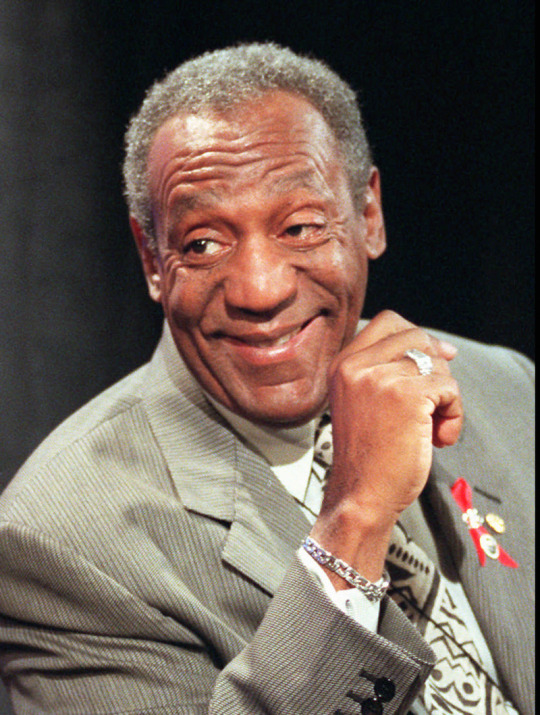
Ordinarily, rape accusations against a highly-revered celebrity would be met with widespread skepticism. But the sheer number of women coming forward – coupled with the vivid descriptions from the purported victims – indicates that Cosby might not be the innocent party here.
Over the course of 2005 and 2006, Cosby’s legal team helped him settle out-of-court with Andrea Constand, who alleged that the aging comedian drugged and assaulted her at his mansion near Philadelphia in 2004. Reports have now surfaced that Cosby conspired with the National Enquirer to cover up Constand’s side of the story.

Former celebrity attorney Tamara Green recounted an experience similar to that endured by Constand – only it apparently took place in 1970. Green had served as a corroboratory witness to Constand’s legal team. Since Cosby and Constand eventually settled, Green wasn’t in any real position to pursue her own case against him.
Joining Green with her own in-court testimony last decade was ex-model Barbara Bowman, who’d claimed Cosby groped her and spiked her drinks on several occasions throughout the mid-1980s. Model-turned-teacher Beth Ferrier recounted similar experiences to Bowman’s from during that decade.
Green, Bowman, and Ferrier all served as “Jane Does” during the Cosby/Constand civil trials.
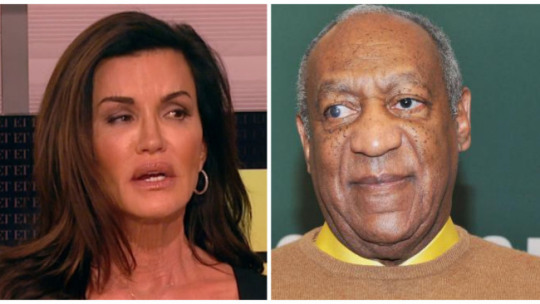
Then, in the aftermath of this past month’s renewed media discussion over the allegations against Cosby, supermodel Janice Dickinson spoke up on November 18, 2014. Dickinson claims that, in 1982 (while Cosby’s NBC sitcom would have been in development), Cosby slipped her a glass of red wine and a pill after she complained of menstrual cramps. When Dickinson tried to include a memoir of this experience in her 2002 autobiography, she was dissuaded from doing so by Cosby and his lawyers, and seemingly acquiesced at the risk of being branded a “slut” or “whore.”
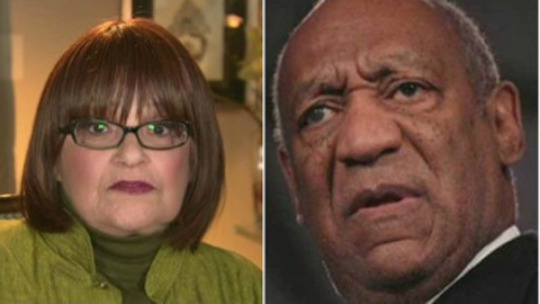
A day later, former comedy writer Joan Tarshis came forward with painful memories of being date-raped by Cosby around the same time Dickinson claims to have been. Tarshis says she hadn’t spoken out until now because she was “scared” and wanted to “get away from him." But, in light of the allegations being revived in the past month, Tarshis stated how she believes that breaking her silence would be a way of showing support to any other women who similarly accuse Cosby of molesting them.

Indeed, on Nov. 20, both Therese Serignese (another of the "Jane Does” in the Constand case) and Louisa Moritz made their voices heard. Serignese alleges that she had a string of sexual encounters with Cosby beginning in 1976 – and even relied on him for financial support over the years. Moritz, who appeared on the TV series Love, American Style as well as the films Up in Smoke and One Flew Over the Cuckoo’s Nest, claims that Cosby sexually accosted her backstage at The Tonight Show in 1971.

Model-actress Angela Leslie came forward one day later, recounting a 1990 incident in Cosby’s Las Vegas hotel room where he fondled her in a manner similar to those described by previous “Jane Does." Former talent agency secretary Kristina Ruehli and Picture Pages actress Renita Chaney Hill described beverage-drugging incidents mirroring those that Leslie says she’d experienced.

In spite of this cascade of allegations against him, no one is saying that Bill Cosby’s contributions should be discounted. His controversial ”Pound Cake speech“ (made at the May 2004 NAACP Image Awards) – where he railed against ebonics, frivolous spending habits, and single parenthood within the black community – nonetheless got people talking about economic and social issues unique to people of color.
Cosby has also been a devoted steward to the Jazz Foundation of America, instrumental in the cultivation of the organization’s ”A Great Night in Harlem“ benefit concert – which will be entering its fifteenth consecutive year.

But, undoubtedly, Cosby’s greatest contribution to pop culture will be having made us laugh. After finding marginal success with the 1965-68 spy drama I Spy and his 1969-71 sitcom The Bill Cosby Show, he catapulted NBC back into primetime prominence with The Cosby Show.
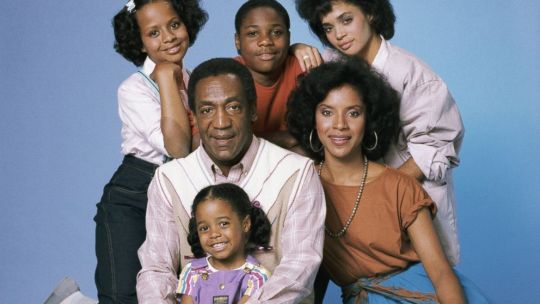
Premiering in the Fall of 1984, Cosby portrayed Dr. Cliff Huxtable, a quick-witted upper-middle class Brooklyn obstetrician. Partnered with his assertive attorney wife, Clair (Phylicia Rashad), Dr. Huxtable guided his brood of five precocious children (along with their assorted friends and extended family members) through the comical travails of life. Though some would argue that Clair actually "wore the pants” in the Huxtable family, Cliff delivered his lines with an iconic mixture of loving firmness and self-effacing playfulness.
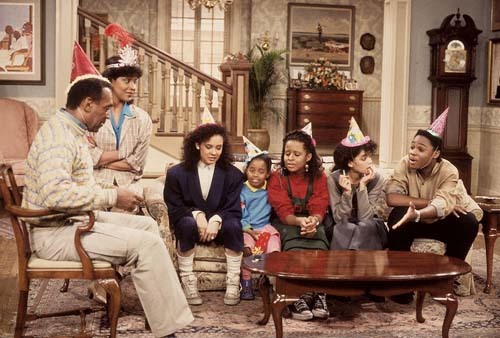
America loved the Huxtables…and rightfully so. Their children – Sondra (Sabrina LeBeauf), Denise (Lisa Bonet), Theo (Malcolm-Jamal Warner), Vanessa (Tempestt Bledsoe), and Rudy (Keshia Knight Pulliam) – could be selfish, and, at times, messed up (like any teenagers will be)…but, overall, they possessed good morals and truly cared about each other (and their peers!) as a family.
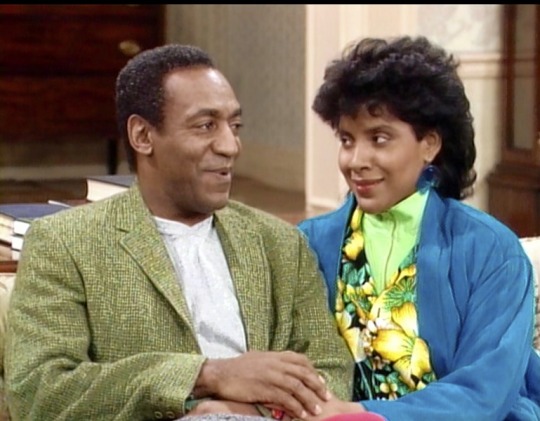
Following the end of The Cosby Show (and after his short-lived 1994-95 detective series, The Cosby Mysteries, also on NBC), CBS recruited Cosby to headline another new sitcom, the self-titled Cosby. Running from 1996 to 2000, Cosby had its star portraying Hilton Lucas, a grouchy airline employee who must navigate the stress of post-retirement life. Rashad reunited with him to play Hilton’s ever-patient wife, Ruthie; the show also costarred the late Madeline Kahn as Ruthie’s wacky best friend, Pauline. While much less successful than The Cosby Show, CBS found itself “back on the map” with Cosby after a disappointing prior two seasons of low-rated veteran and freshman series.
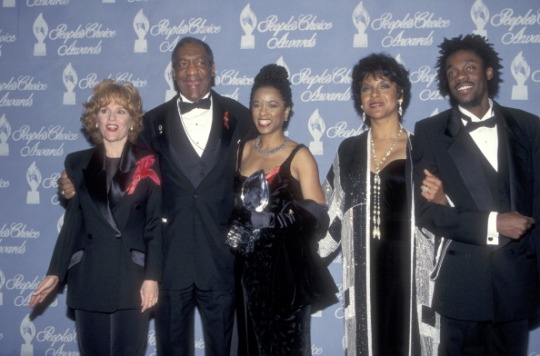
In January 1998, CBS gave Cosby his own reality show, Kids Say the Darndest Things – inspired by a classic segment of the same name from Art Linkletter’s House Party throughout the 1950s and 1960s.
Despite all of his (presumed) behavioral sins, there should be no doubt that Cosby enjoys benign interactions with children…and he definitely cared about providing them and their families with “clean” television that would inspire creativity and thoughtfulness amid young minds.
In fact, former Cosby Show costar Raven-Symoné (she played Denise’s stepdaughter, Olivia) firmly denies tabloid-esque accusations that Cosby ever took advantage of her while on the set. Raven-Symoné lambastes such rumblings as “a disgusting rumor”…as far as it pertains to her own experiences working with Cosby.

So, for a moment, let us pay tribute to some of my own treasured memories of Bill Cosby’s comedic antics.
We all remember Cosby’s iconic TV commercials as a spokesman for Jell-O. In the early-1990s, Cosby did an adorable promo (along with a team of child actors) to advertise “jigglers” (which were fun Jell-O molds made from pre-sold cookie cutters). The cutest commercial from this promotional campaign featured Cos’ and several kids elegantly dressed up, having fun with their “jigglers” before dining on them at a formal dinner table – culminating with a little Asian girl mischievously grabbing one of the “jigglers” off a fancy platter, to which Cosby leans over and affectionately instructs her to “put that back.”
Cosby on Kids Say the Darndest Things, talking with a group of kids about love, aging, and parents.
Cosby chatting up future Stanford graduate Jeremy Fine on Kids Say.
From the pilot episode of The Cosby Show – Dr. Cliff Huxtable teaches only son Theo a lesson in economics:
Cosby Show early years – Dr. Huxtable tells youngest daughter Rudy an “urban legend” about the-little-girl-who-wouldn’t-eat-her-vegetables.
The Huxtables fake out Cliff on his birthday…later in the episode, they surprise him with a cabaret show performance by Lena Horne, who appears as herself.
Cliff plots to break up oldest daughter Sondra with her steady boyfriend, Elvin, by fixing up Sondra with a “more ideal” suitor.
Clair dispenses some “tough love” to future son-in-law Elvin, while Cliff watches.
The Huxtables teach daughter Vanessa a “fake-out” lesson after Vanessa parties with her friends and gets drunk for the first time.
Rebellious daughter Denise breaks the news to Cliff and Claire that she eloped…and is now married with a new husband and stepdaughter.
Dr. Huxtable receives an educational primer from his new “stepgranddaughter” (Olivia, played by Raven-Simone) about where babies actually come from.
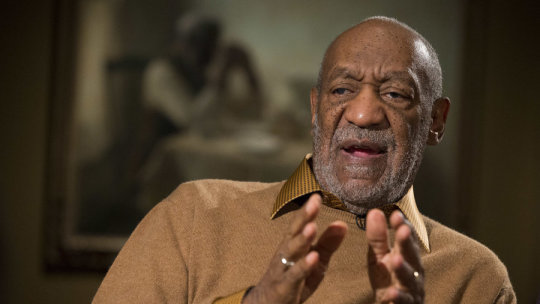
In Cosby’s only interview thus far where addresses these rape allegations, he remains firm in his desire to refuse further discussion on the subject, dismissing them as “innuendos” that are not even worth entertaining.
A previous television interview (featuring Cosby and his wife, Camille), when the issue was brought up by NPR Weekend Edition host Scott Simon, Cosby actually asked Simon to keep the issue quiet by refraining from releasing the footage. Camille Cosby sat next to her husband…with visibly uncomfortable body language.
I also find it suspect how Cosby hasn’t given any interview to address this snowballing controversy with any Big-Name Journalist out there (be it Barbara Walters, Matt Lauer, or Oprah Winfrey). Given the extent of bad PR that has developed for him, you’d think someone of Cosby’s stature would want to clarify the record and very loudly tell his side of the story…if he was innocent.
This entire reality is so personally saddening for me, because I’ve always enjoyed Cosby’s subtle brand of humor in scripted television. In fact, I would always joke how my late maternal grandfather was “the white Bill Cosby” (due to my grandpa’s Cosby-like delivery of commentary, along with his eerie tendency to dress like Hilton Lucas).
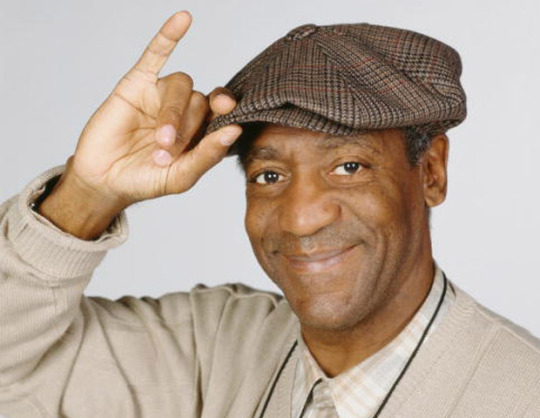
While I understand that none of us should have a romanticized view of Cosby (or any other celebrity, for that matter), seeing his life torn apart in this manner really, really hurts.
I’ve known at least a couple of people who’ve encountered Cosby personally, while working behind-the-scenes to facilitate his occasional comedy shows at my old alma mater (the University of Wisconsin - Eau Claire). These accounts have suggested that Cosby, even when he’s interacting with someone whom he doesn’t find sexually desirable, can have a tendency to behave in a disrespectful, crude, and/or belittling manner. Of course, he’ll hide behind the cloak of simply “trying to be funny”…and those on the receiving end might be inclined to give “America’s Favorite Dad” the benefit of the doubt, in such moments of starstruck awe.
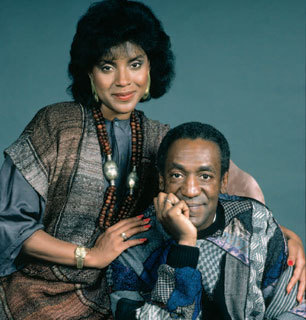
Even if Cosby is 100% innocent (which I seriously doubt) of all these allegations…he would have a responsibility to defend himself on behalf of all of his fans who’ve admired him for decades…not to mention all of the other actors and actresses whose own careers will be perpetually linked to his.
How long before Phylicia Rashad can’t go out anywhere because everyone in the media is pestering her about her thoughts on the scandal? Or likewise for Lisa Bonet, since her professional relationship with Cosby was rumored to have been extremely tumultuous.
Is NBC going to pull the long-delayed upcoming edition of Celebrity Apprentice due to Keshia Knight Pulliam’s presence on it?

And, while I can understand NBC canceling Cosby’s development deal (and Netflix’s postponement of the comedy special), I do find TV Land pulling Cosby Show reruns entirely from its schedule to be a little bit too much.
If the ratings for those syndicated airings had already dropped significantly, then I could understand doing it. But yanking The Cosby Show as a preemptive measure…that’s a gratuitous overreaction! Let us have our fond memories of Dr. Huxtable and his affable brood, please.
My guess is that all of these women are going public because they want justice achieved. So Cosby needs to ask himself: “What would Cliff Huxtable do?”
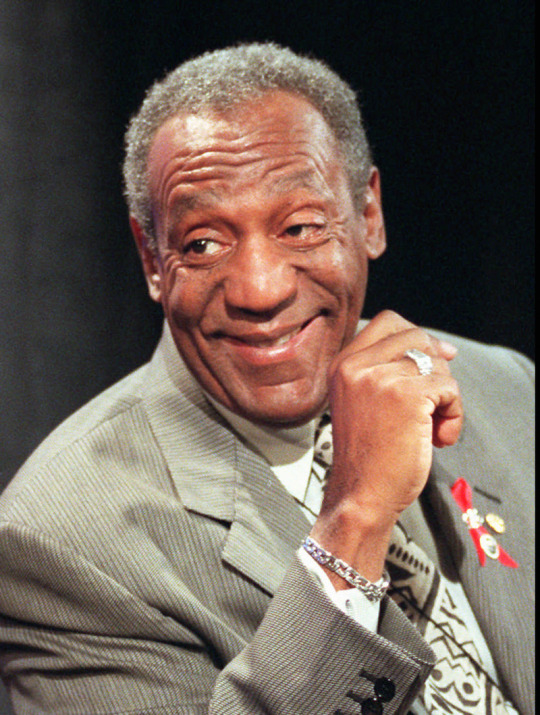
If he is guilty of any of these crimes, Cosby needs to come clean and apologize to the victims. He should ask for their forgiveness (as well as that of his fans, colleagues, and family), and offer to make restitution. It wouldn’t even need to be multimillion dollar checks to anyone who’s made allegations…his “reparations” could be in the form of philanthropic resources for victims of rape and domestic violence.
And if he isn’t actually guilty, then he needs to do a Walters or Lauer or Winfrey interview. Stat!

Cosby should also ask the media to be respectful of his former costars and his own family. If media whores overstep their bounds by harassing anyone who has been remotely associated with Cosby, public opinion will shift toward forgiveness of him.
These actions (or lack thereof) would speak loudly to Cosby’s true character, and help to at least partially restore his now-tainted legacy.
0 notes